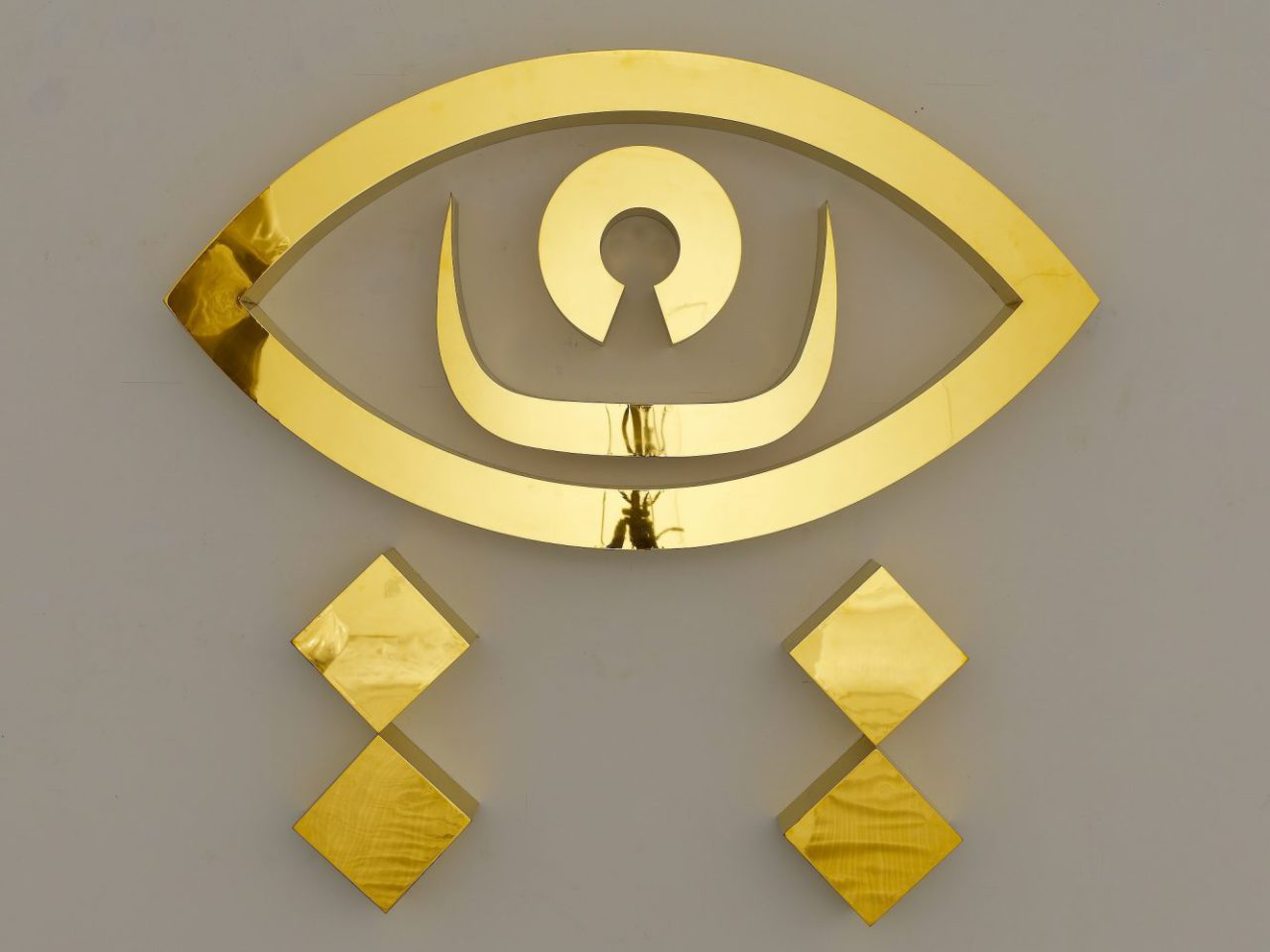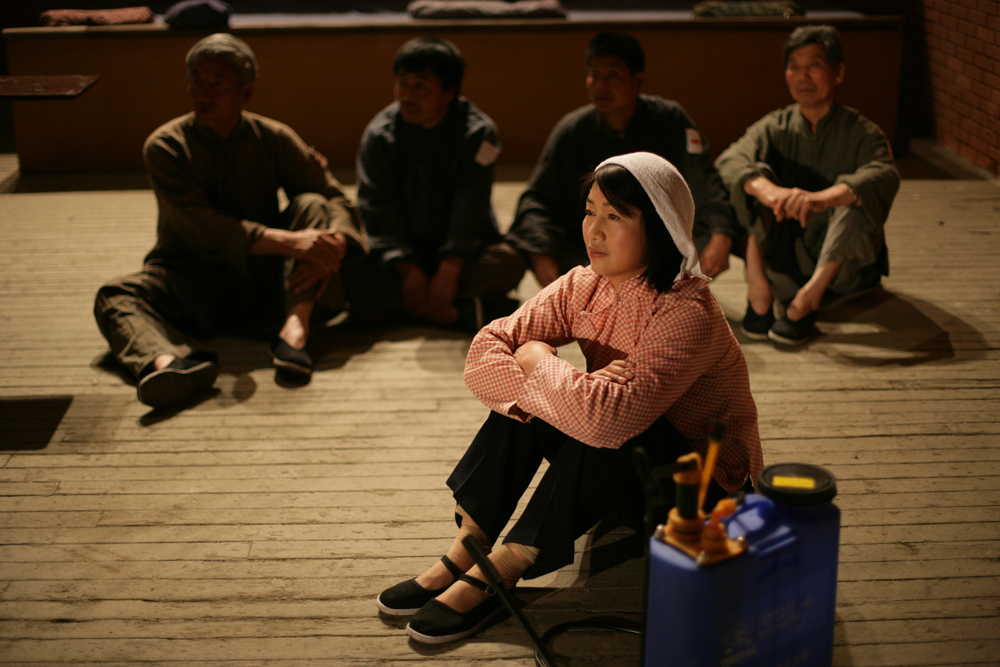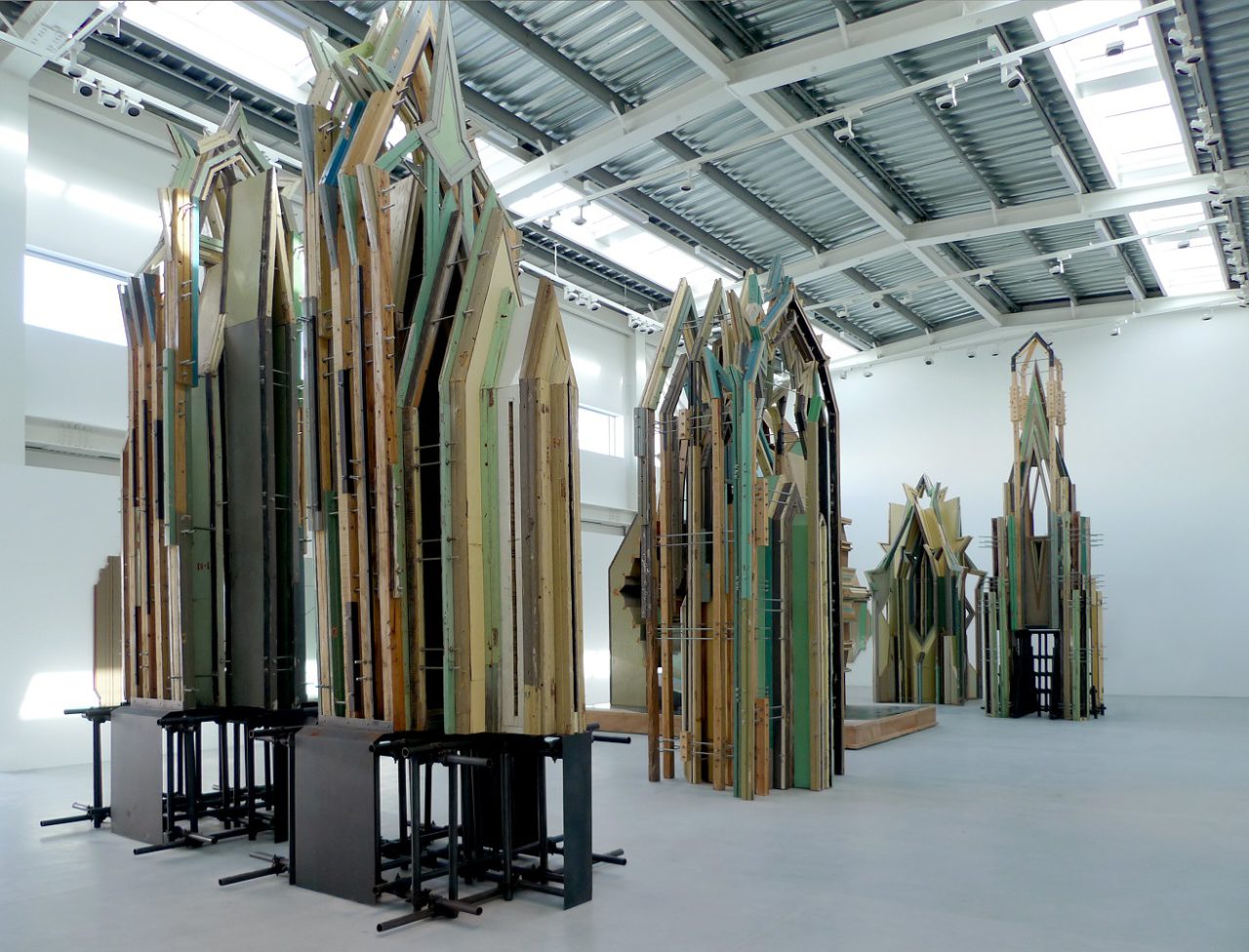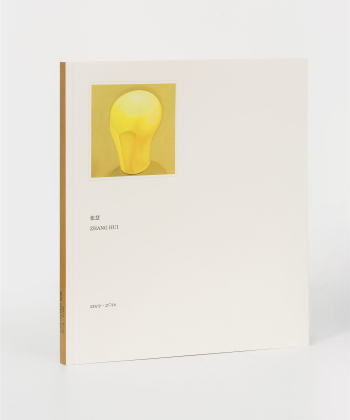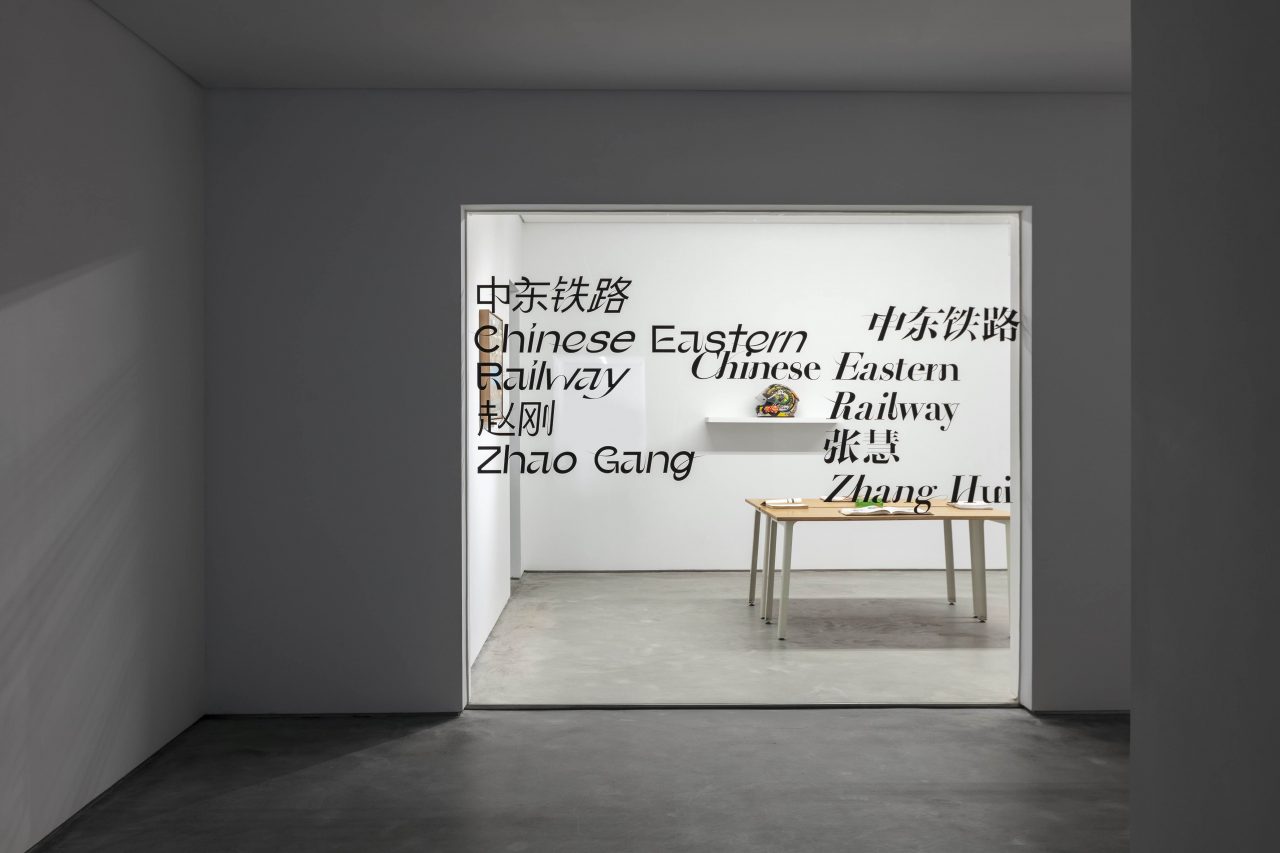-
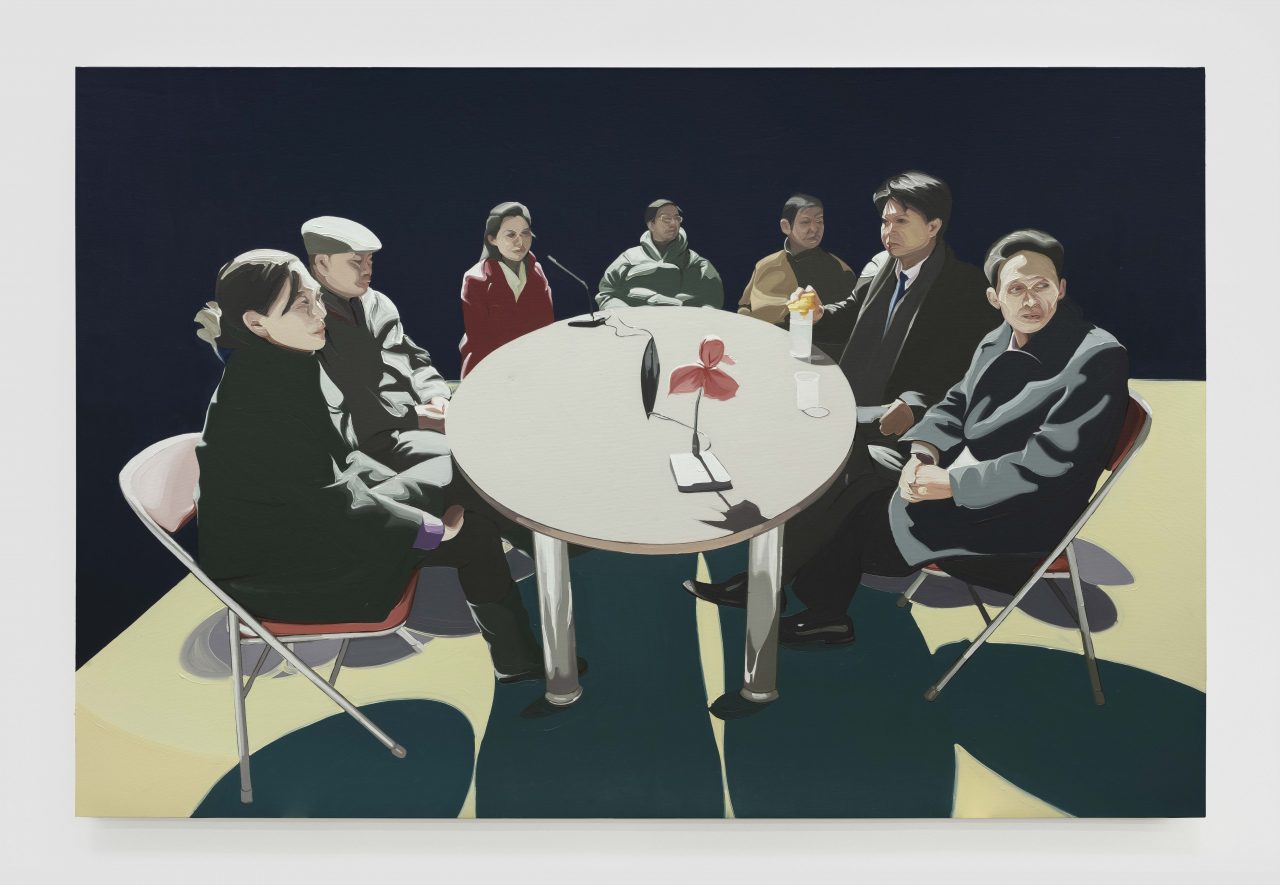
The Microphone is Broken Again
2020
Oil on canvas
200 x 300 cm
-
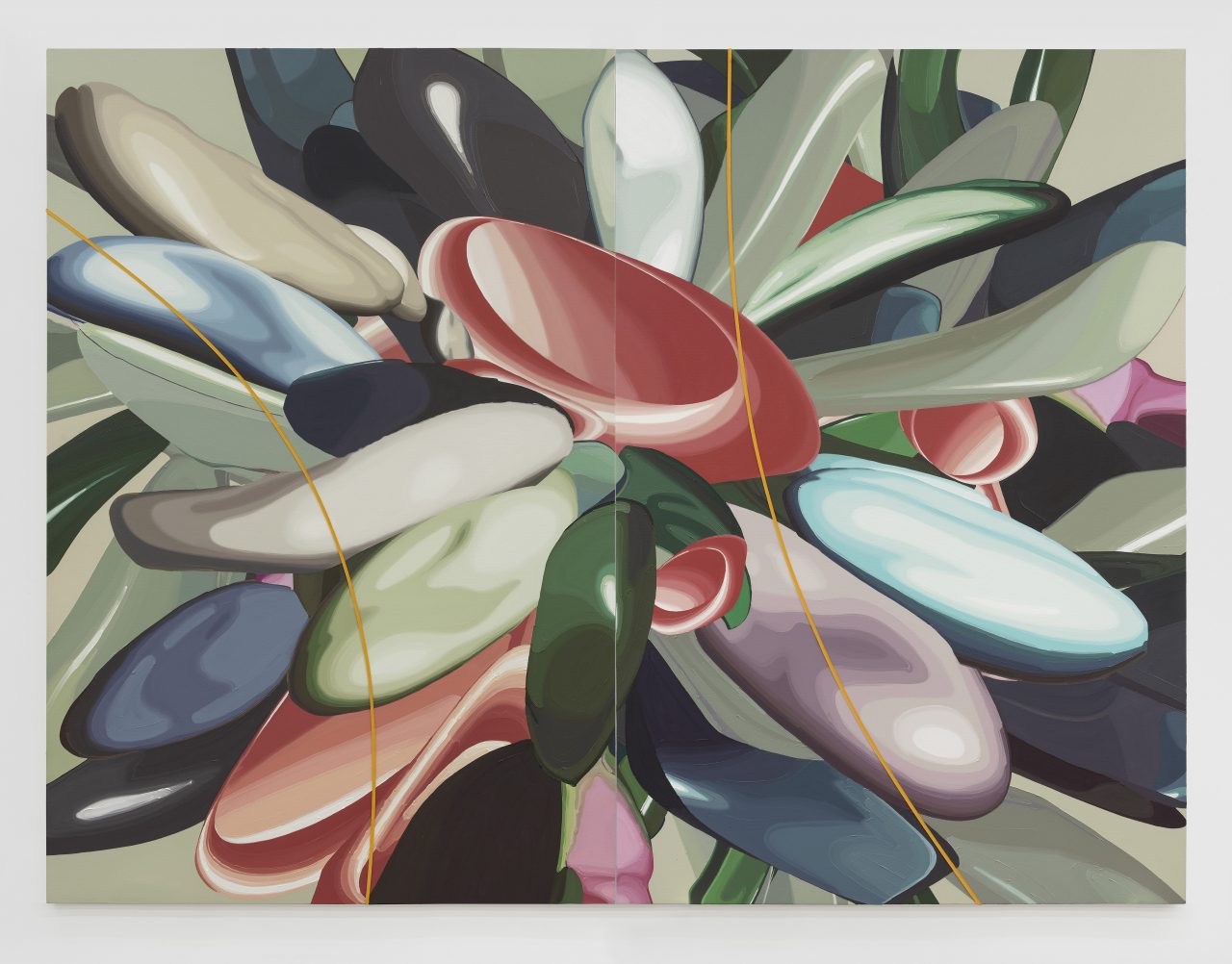
Dense No.6
2020
Oil on canvas
Composed by two parts,each part 225 x 150 cm, total 225 x 300 cm
-
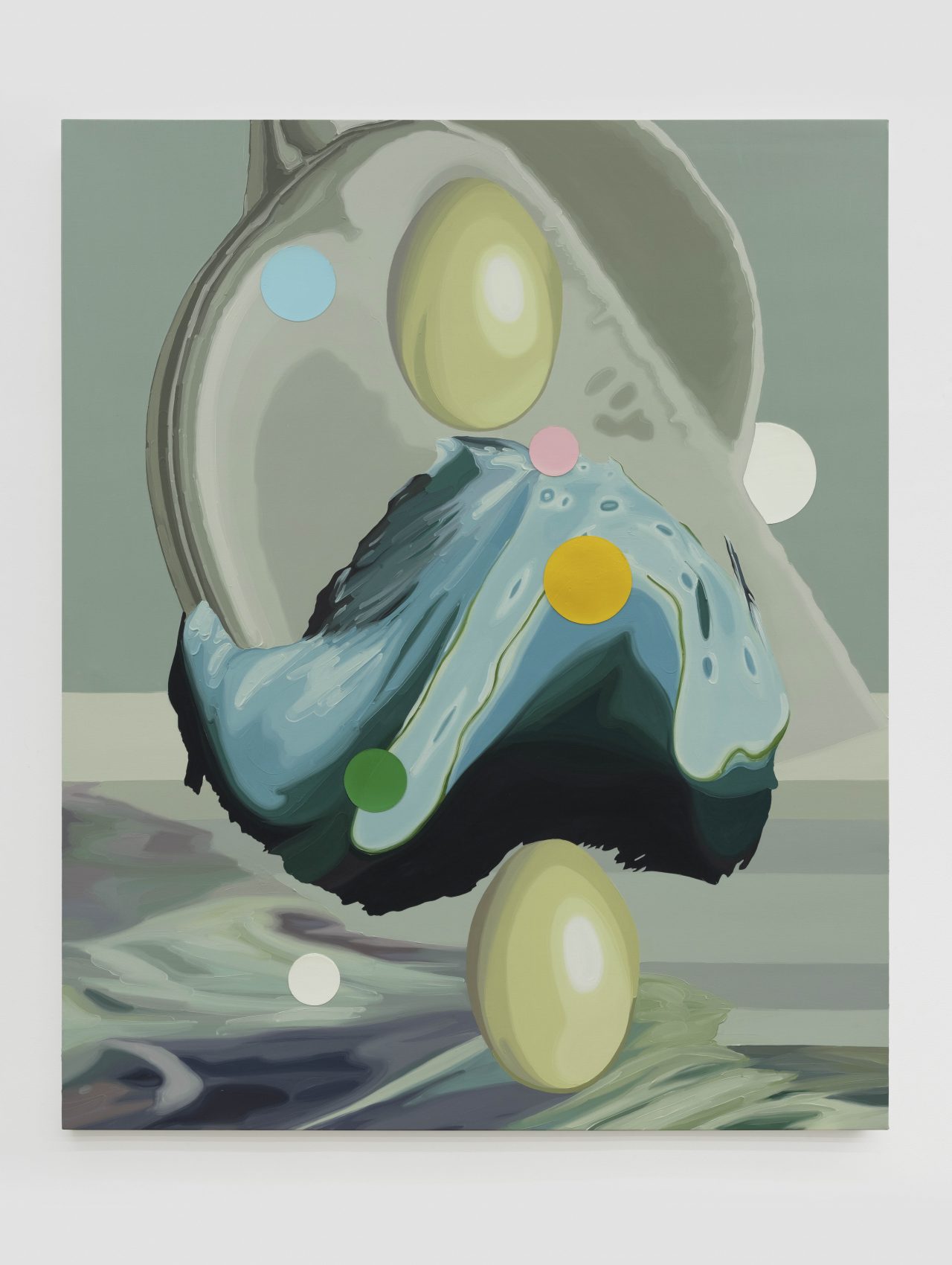
Dense No.5
2019
Oil on canvas
200 x 164 cm
-
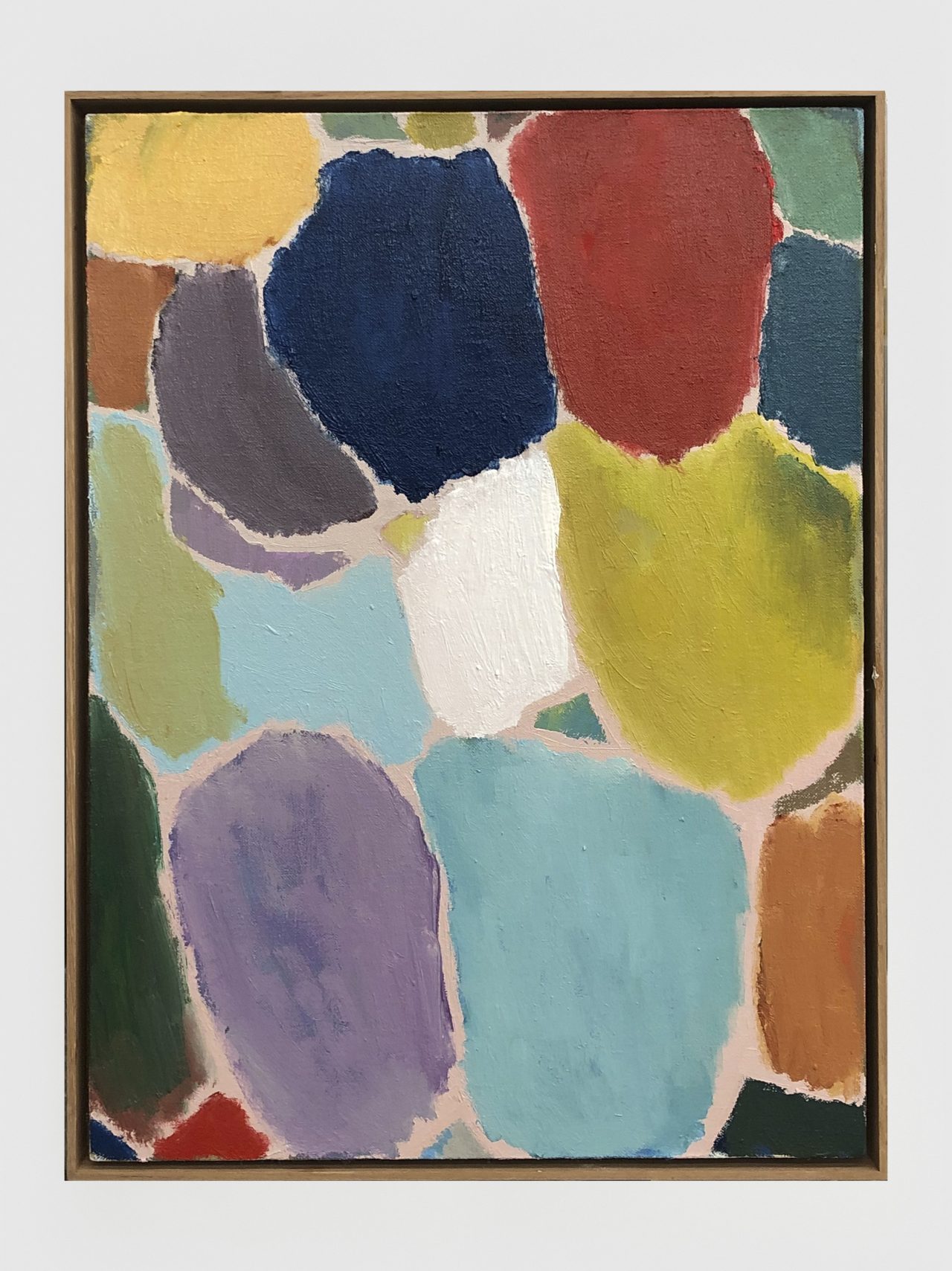
Square(Colorful Stones)
2020
Oil on canvas
72.7 x 52.7 cm
-
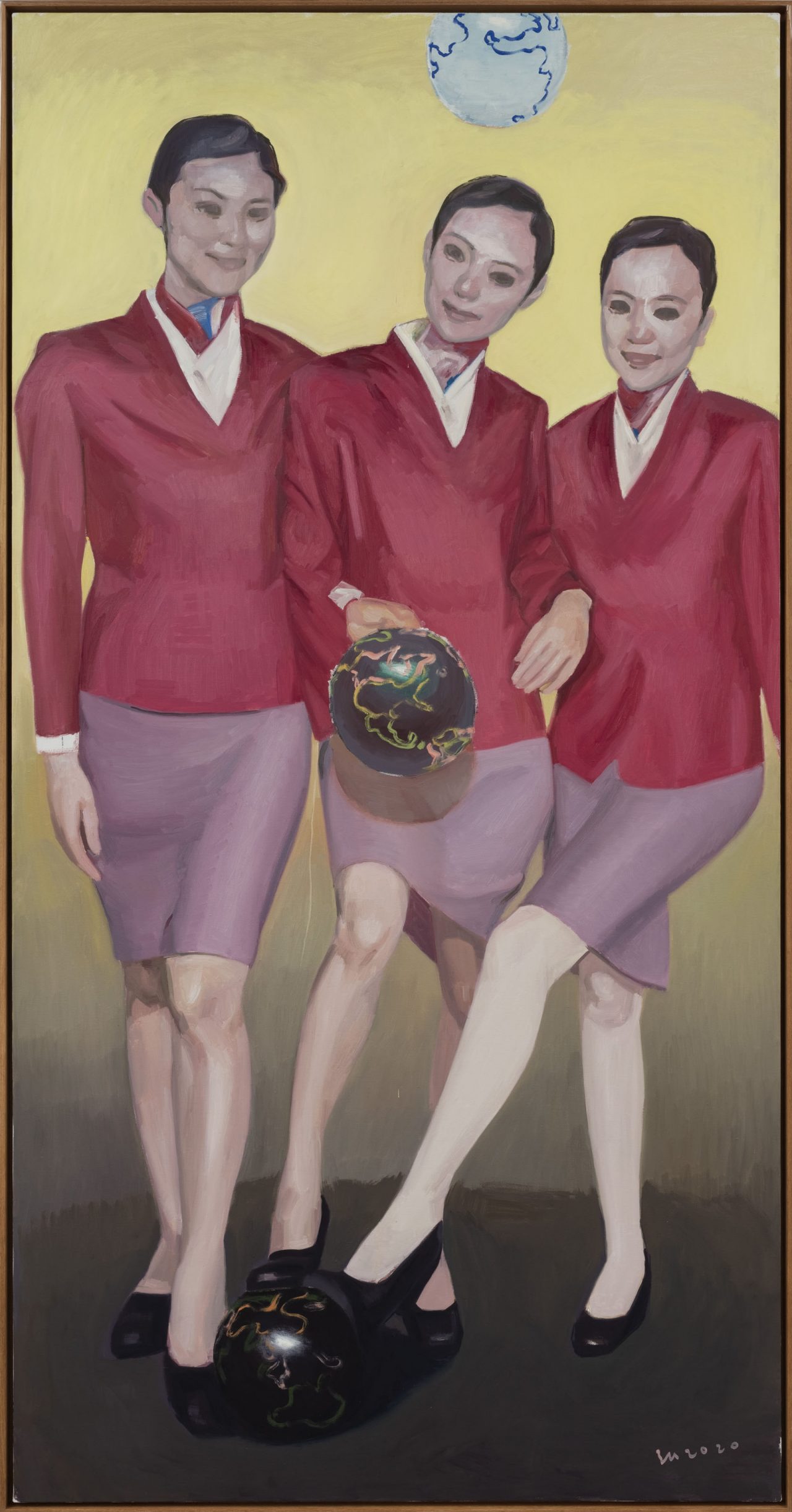
Aviation Chart
2020
Oil on canvas
250 x 130 cm
-
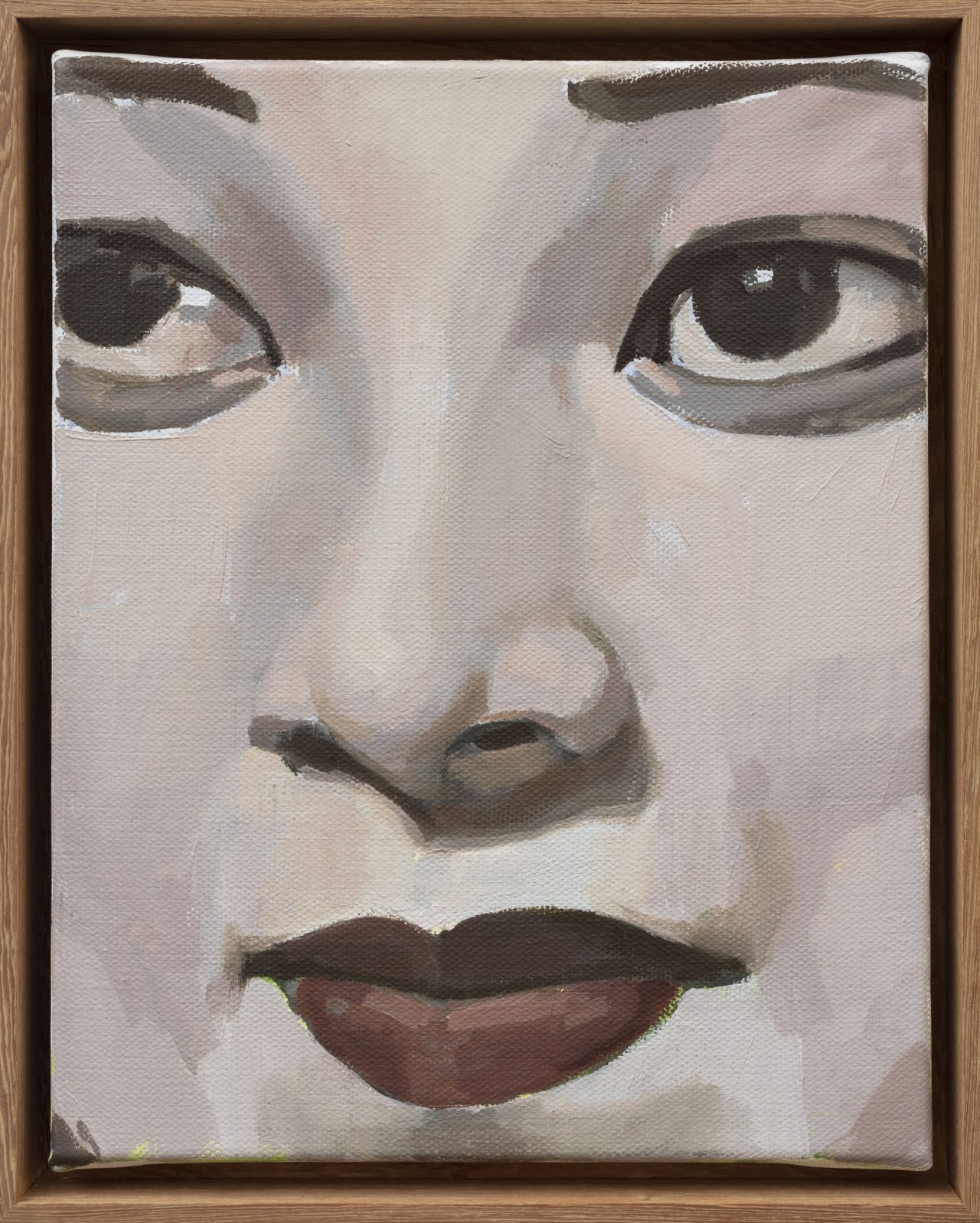
Trace (Face)
2020
Oil on canvas
33 x 26.7 cm
-
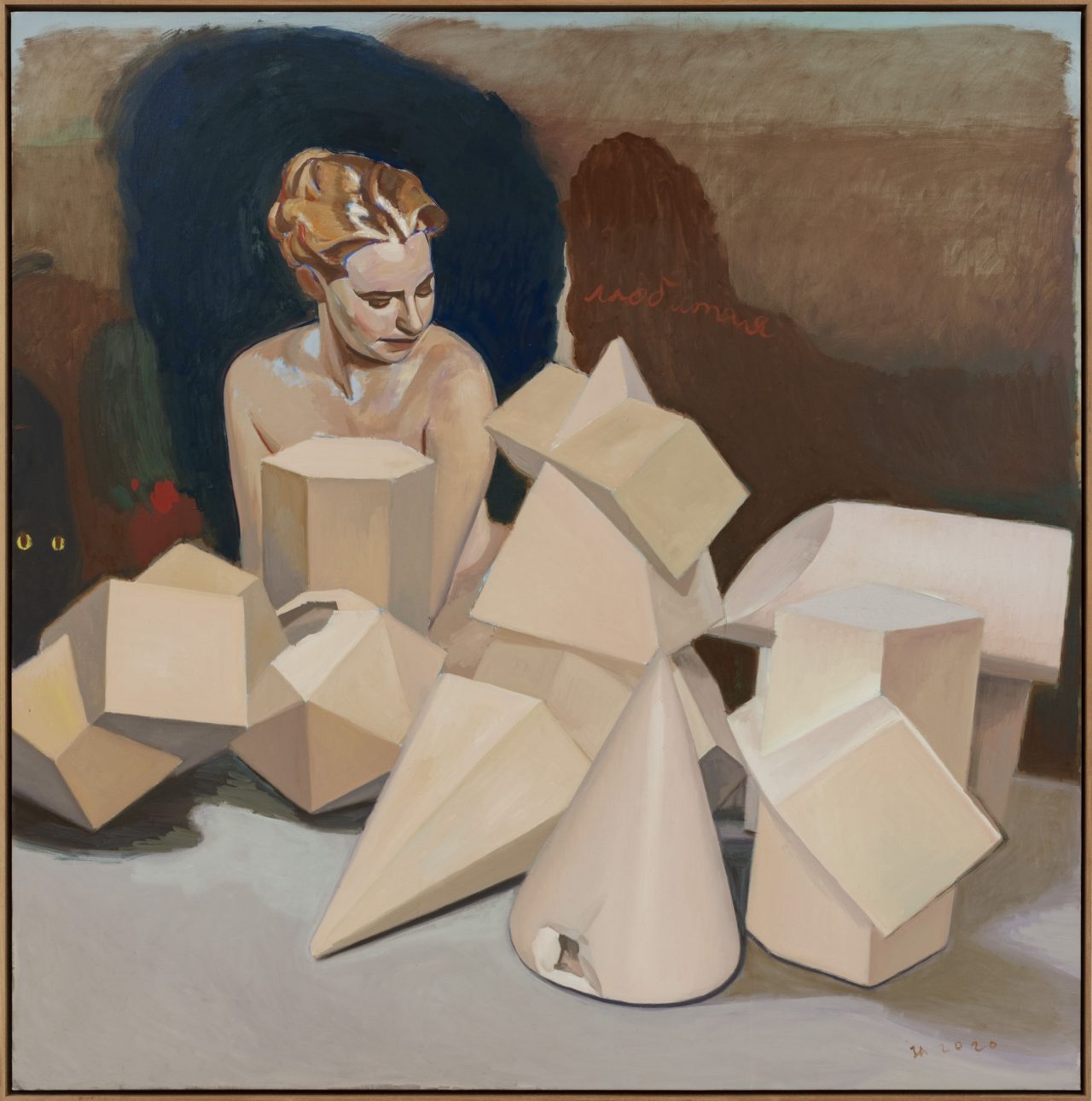
Architecture (Geometric Katyusha)
2020
Oil on canvas
204 x 204 cm
-
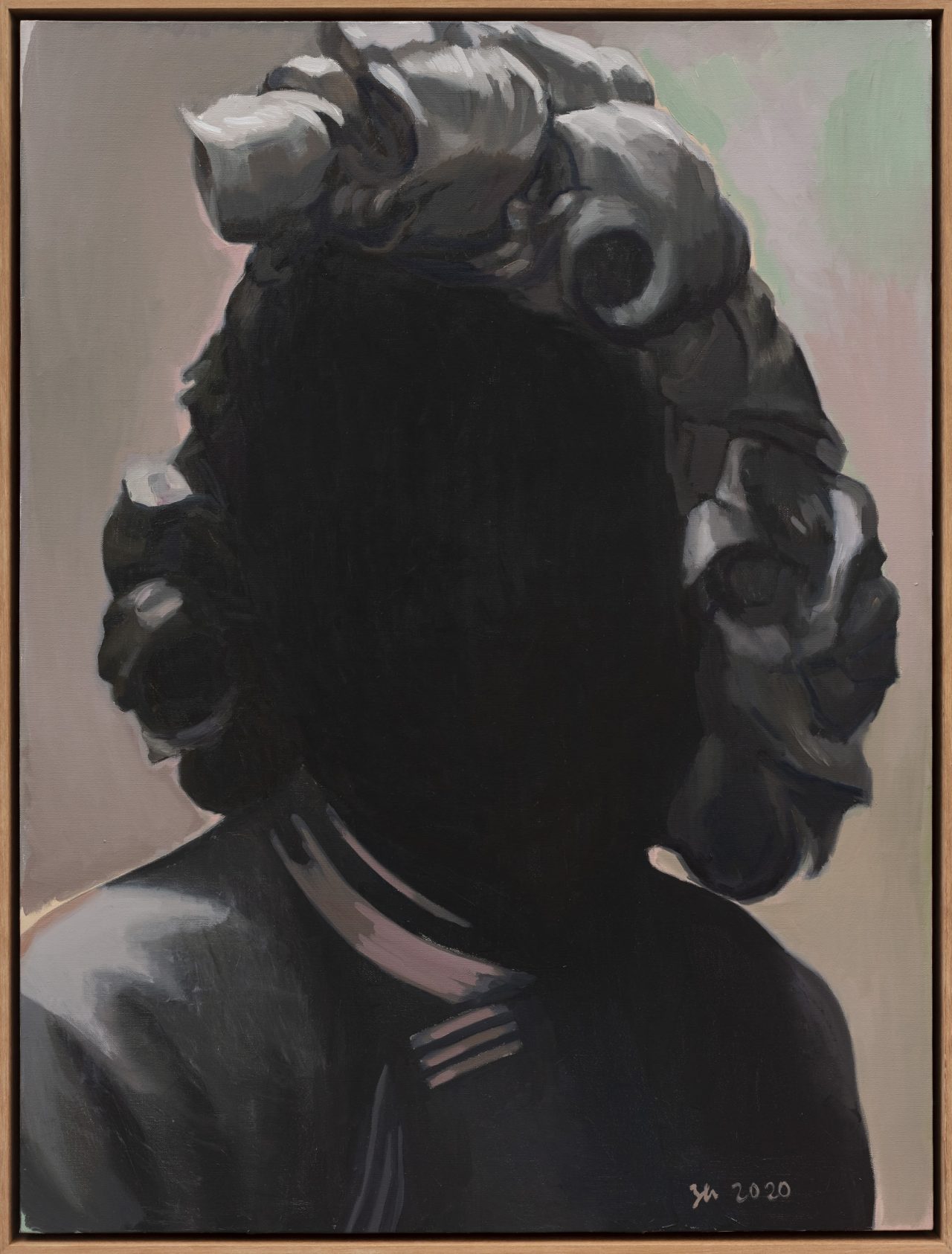
Trace (Head Mask)
2020
Oil on canvas
124 x 94 cm
-
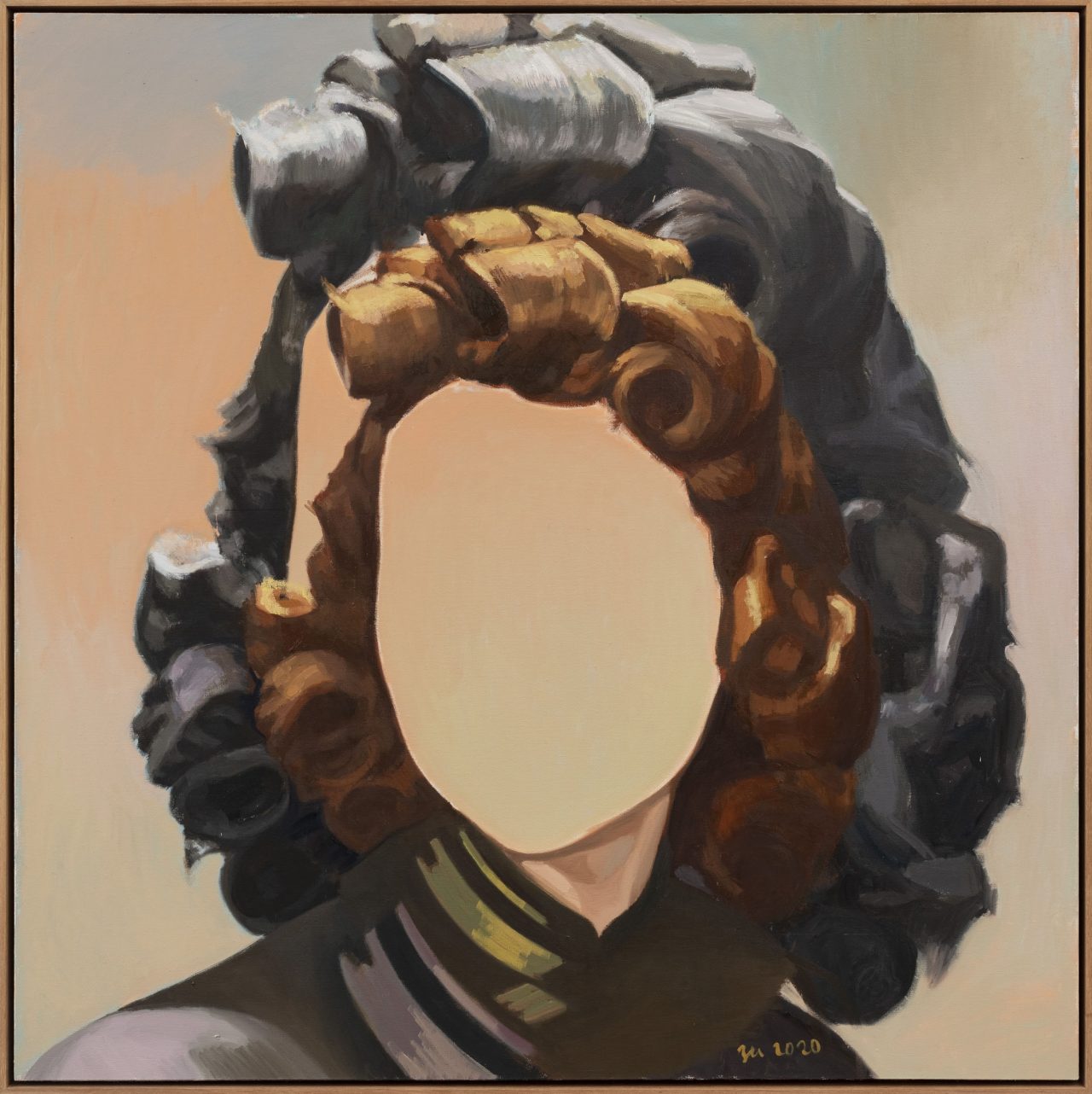
Trace (Makeup)
2020
Oil on canvas
154 x 154 cm
-
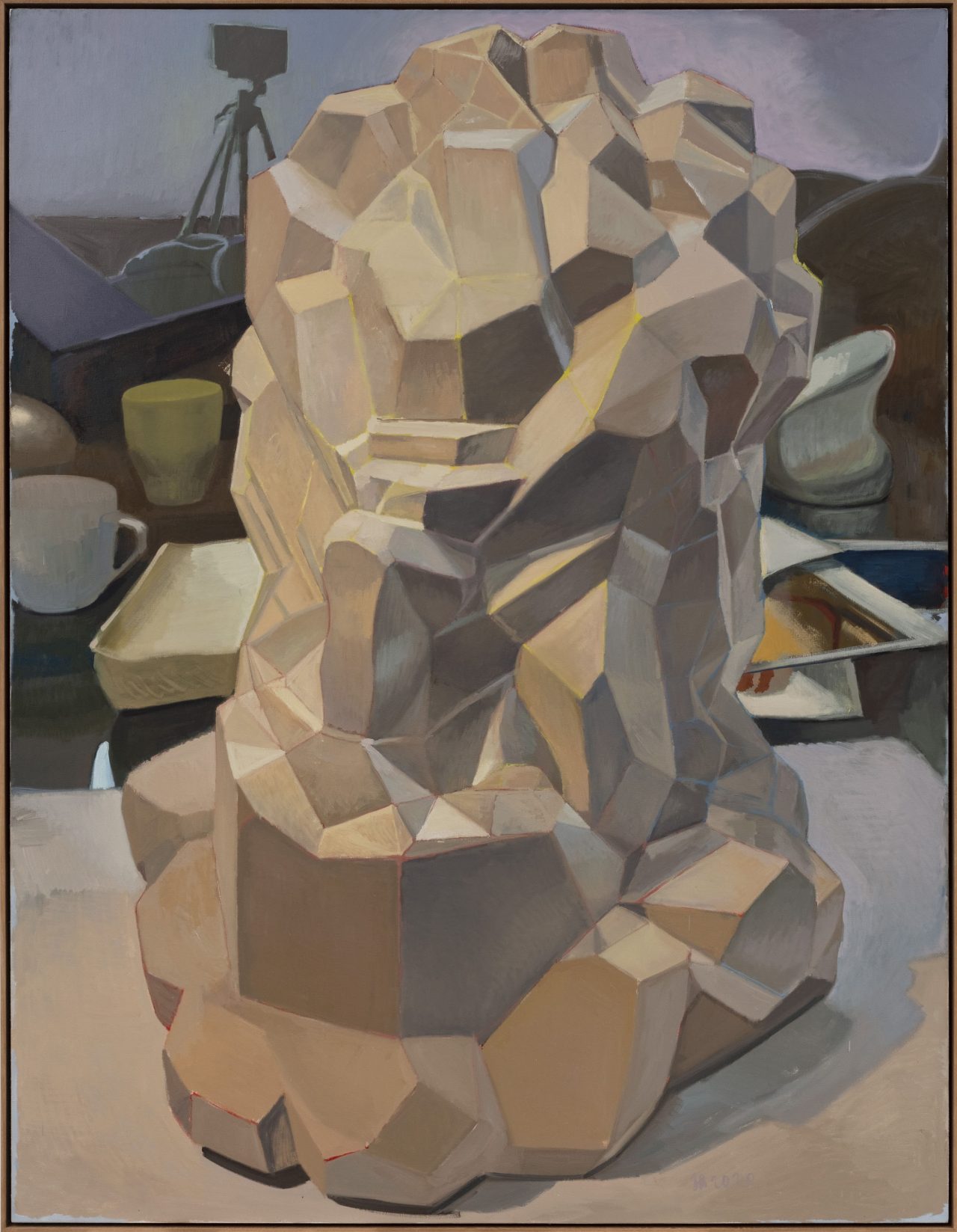
Architecture (Moses)
2020
Oil on canvas
264 x 204 cm
-
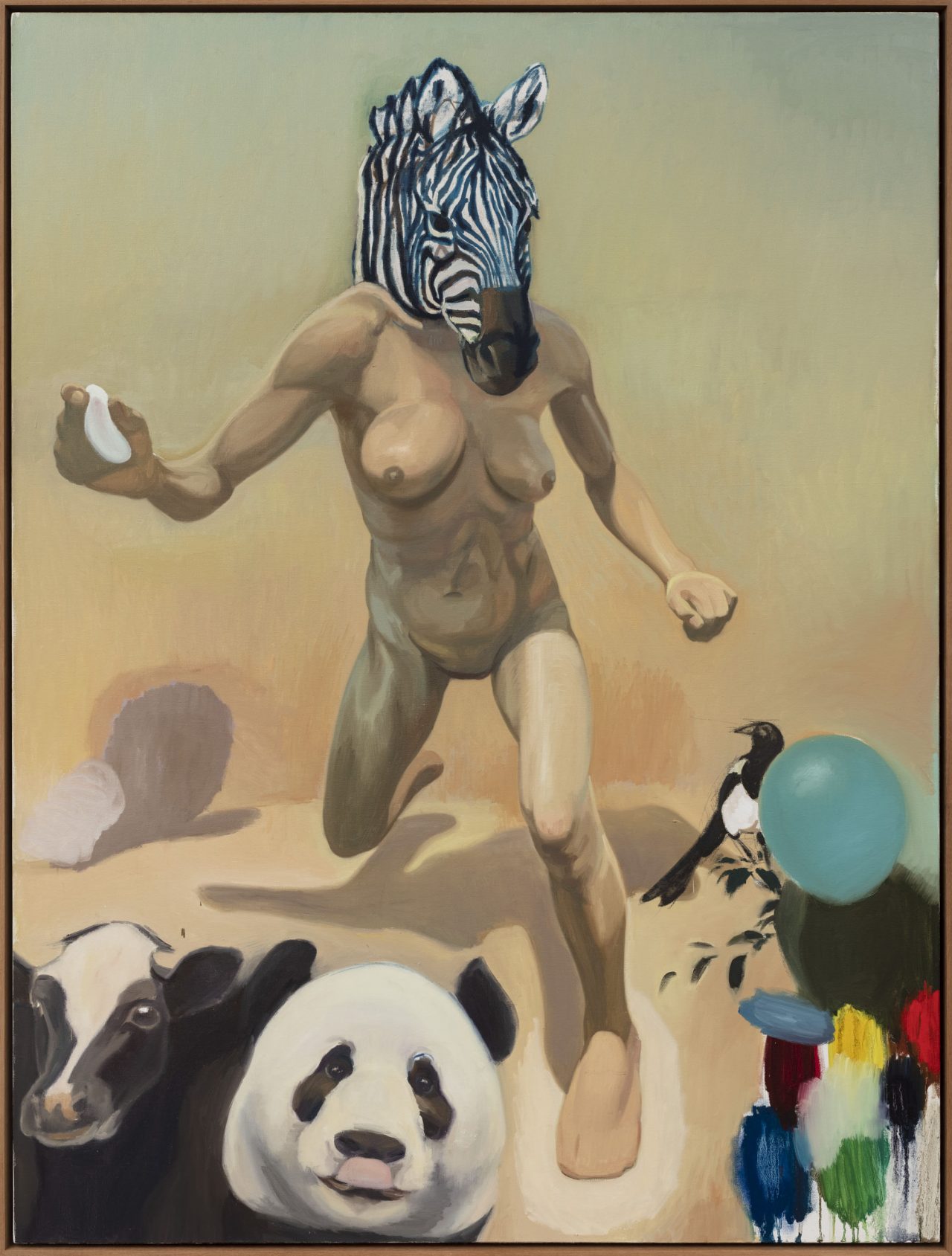
Outdoor Life (Ang’angxi )
2020
Oil on canvas
204 x 154 cm
-
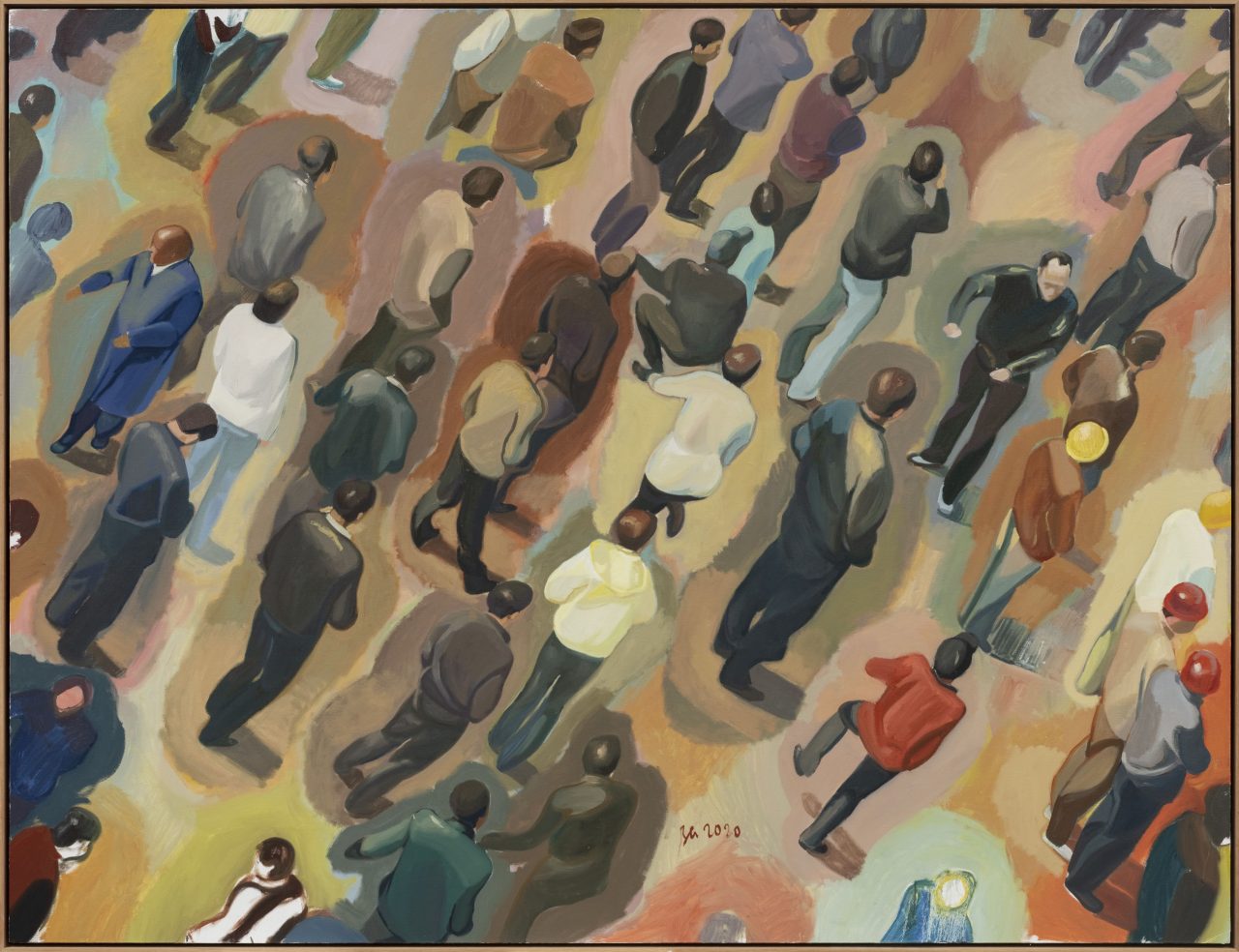
Square (Square in Colorful Stones)
2020
Oil on canvas
204 x 264 cm
-
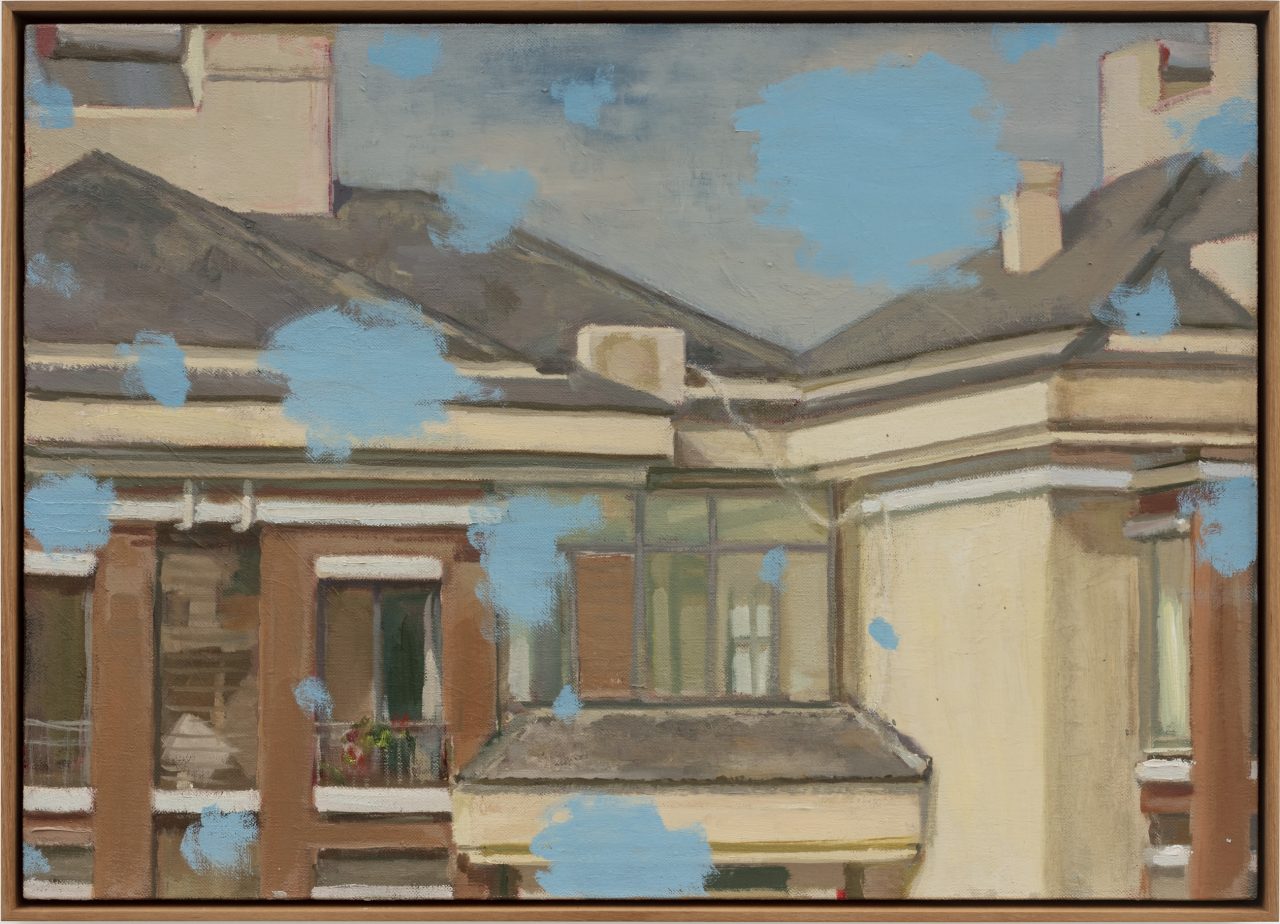
Outside the Window (Retina 1)
2020
Oil on canvas
52.4 x 72.3 cm
-
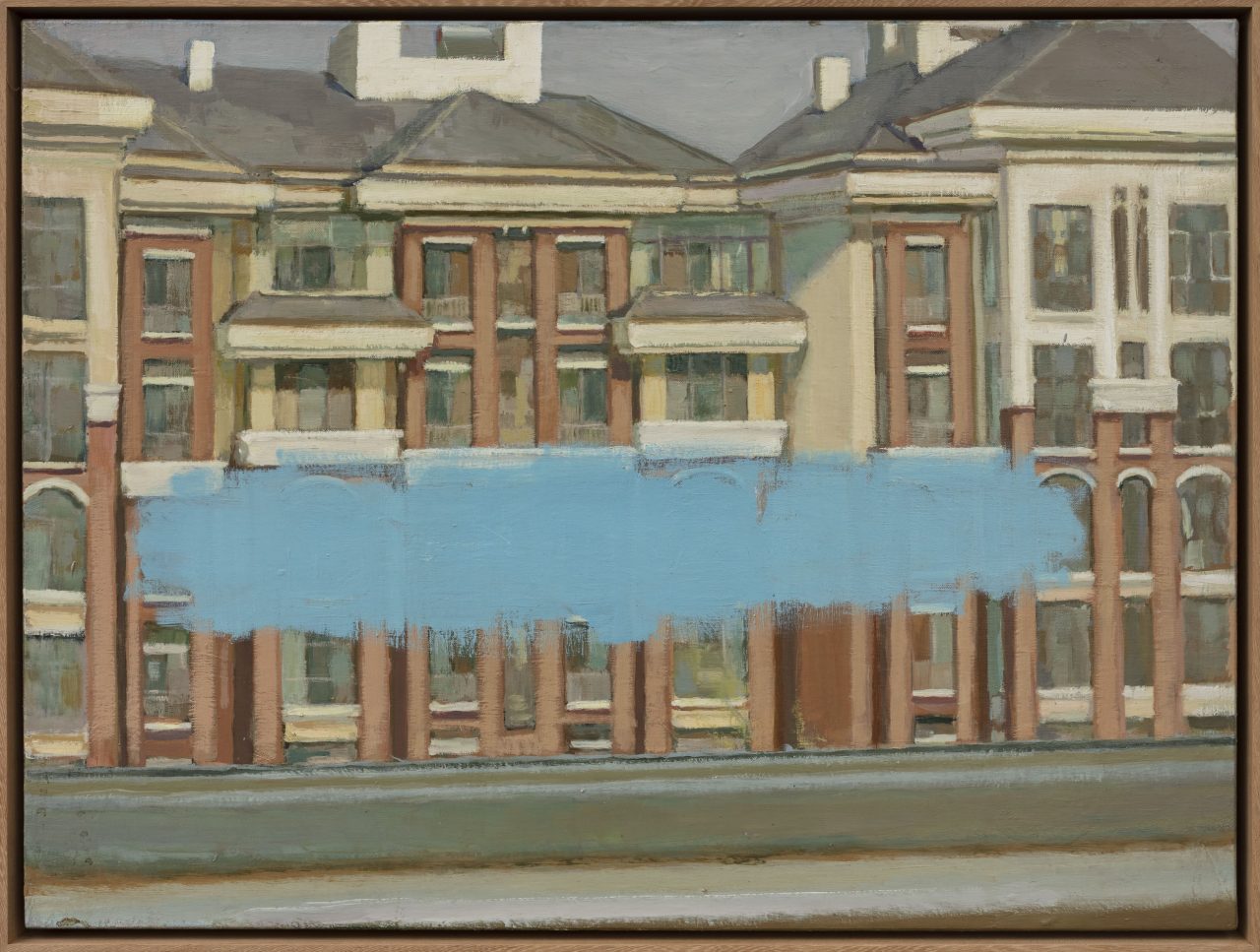
Outside the Window (Retina 2)
2020
Oil on canvas
63 x 82.7 cm
-
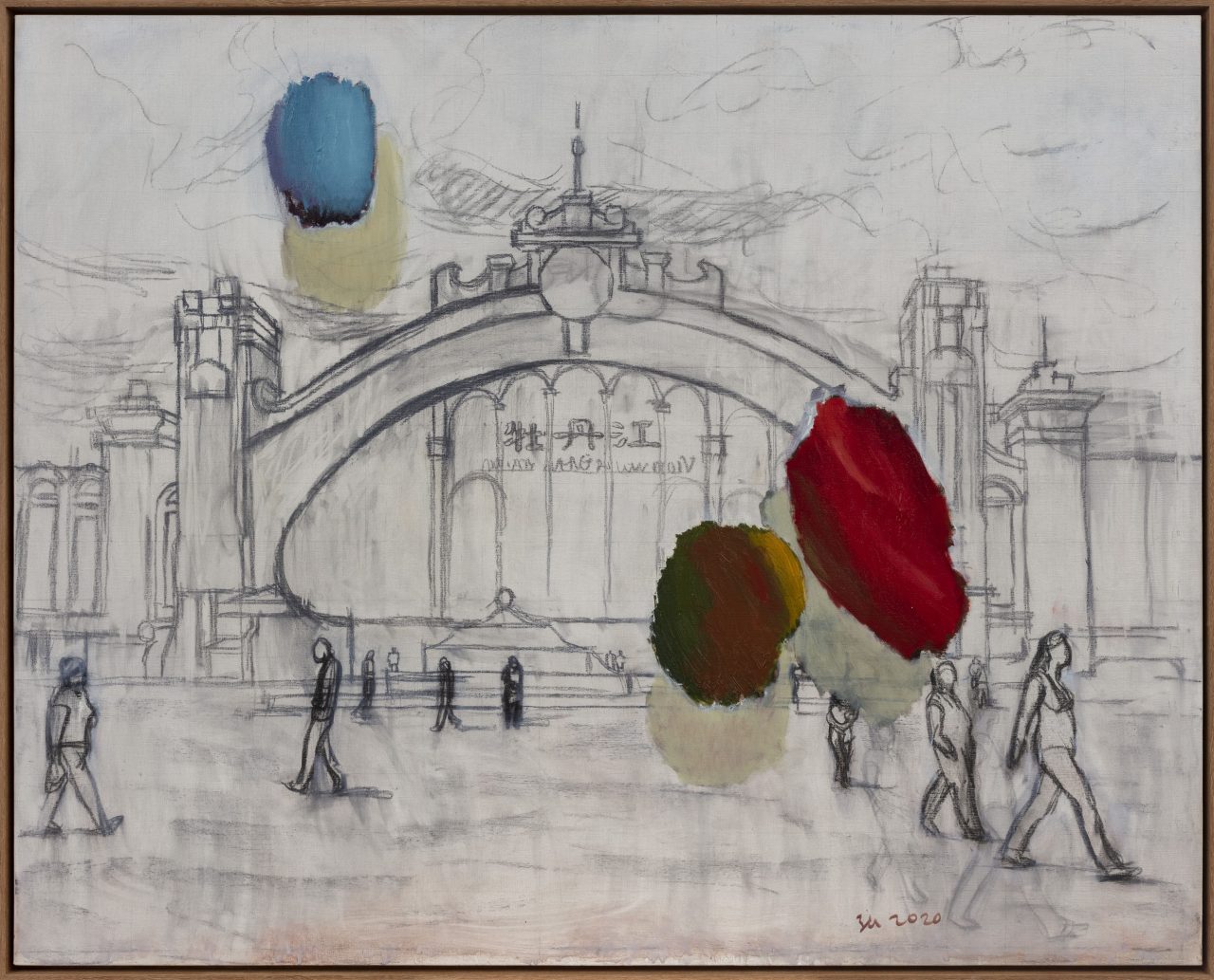
Mudanjiang
2020
Oil on canvas
134 x 166 cm
-
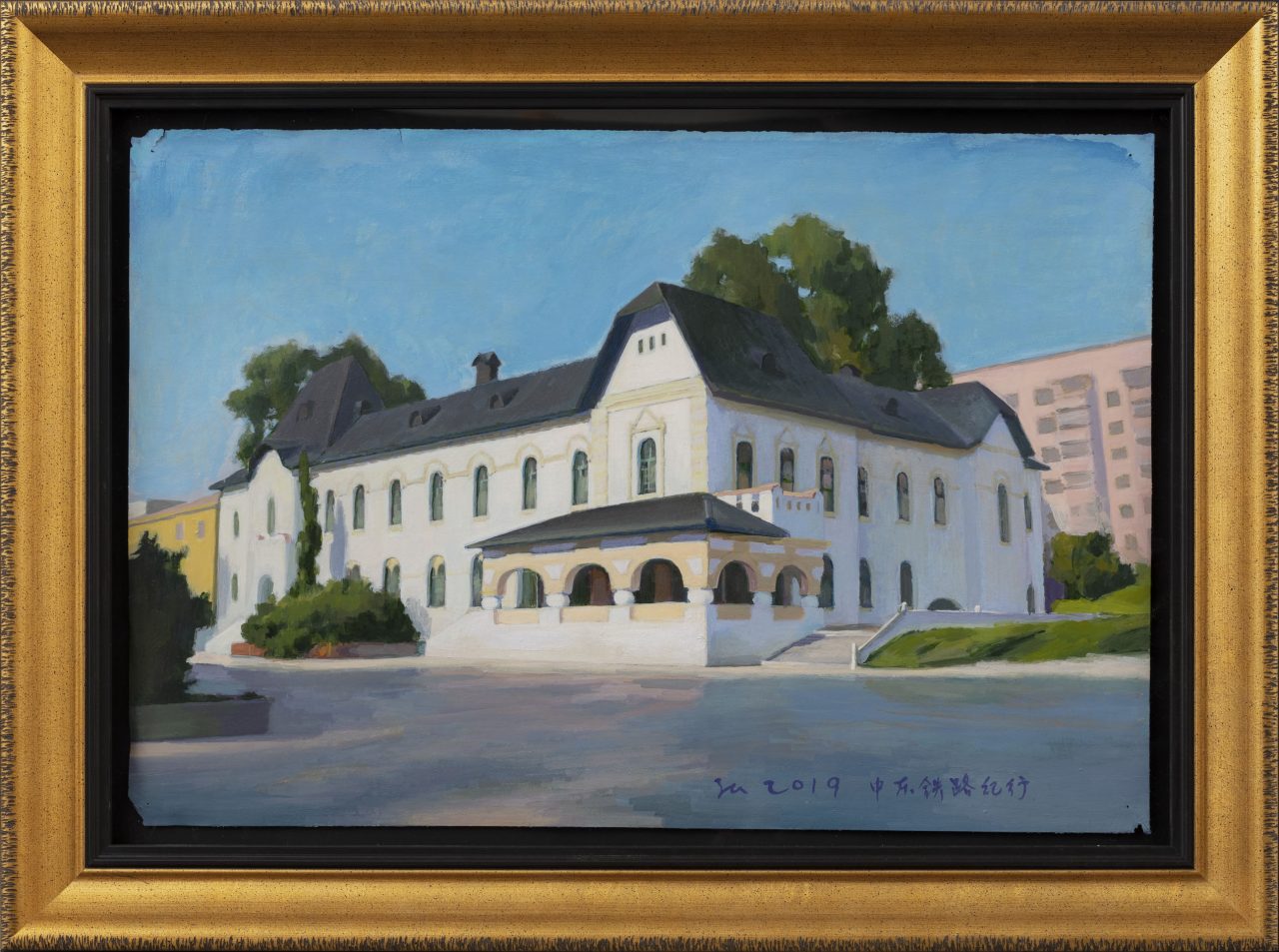
2019 Suifenhe Journey
2020
Acrylic on paper
70.5 x 94.4 cm
-
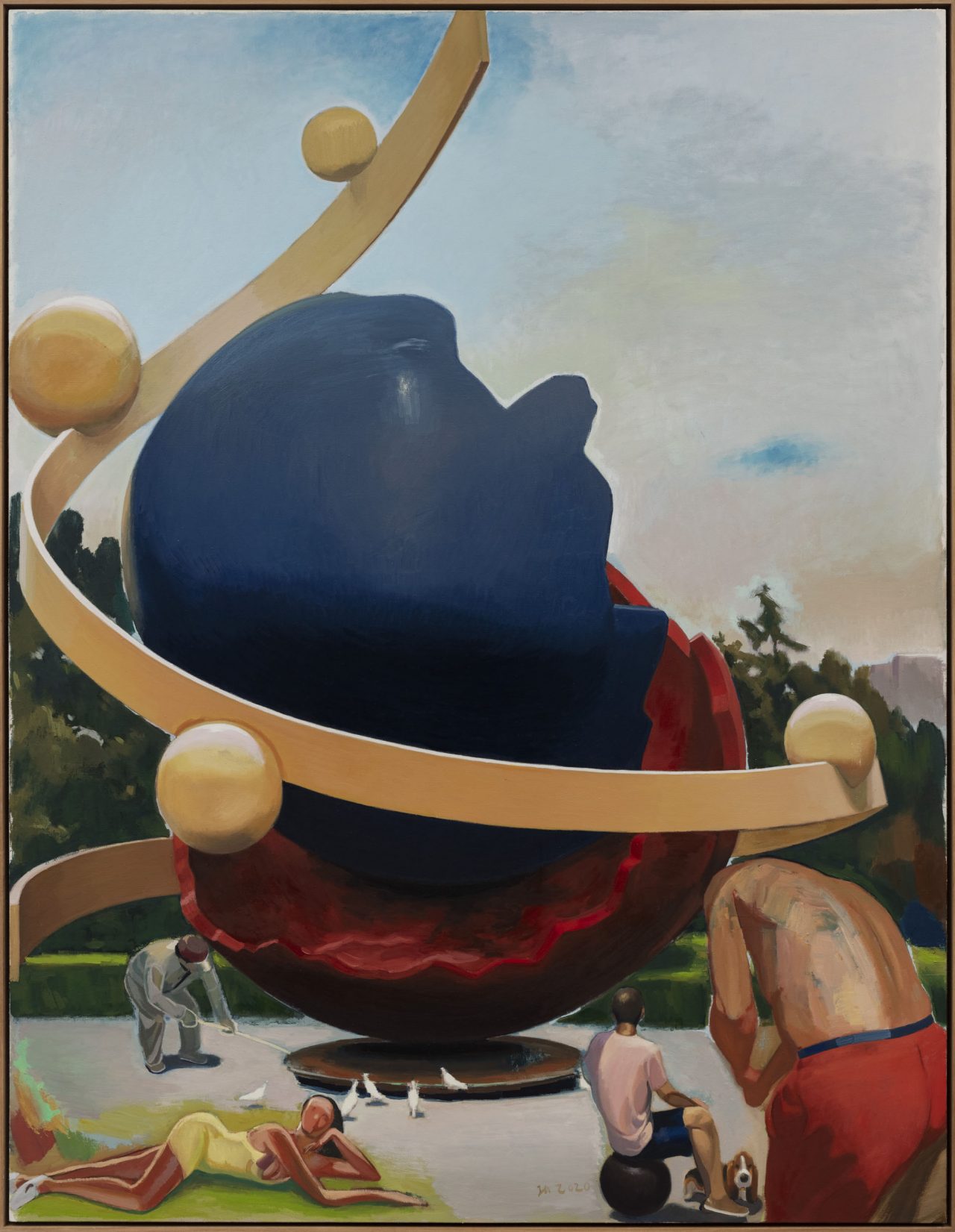
The Small People’s Park
2020
Oil on canvas
264 x 204 cm
-
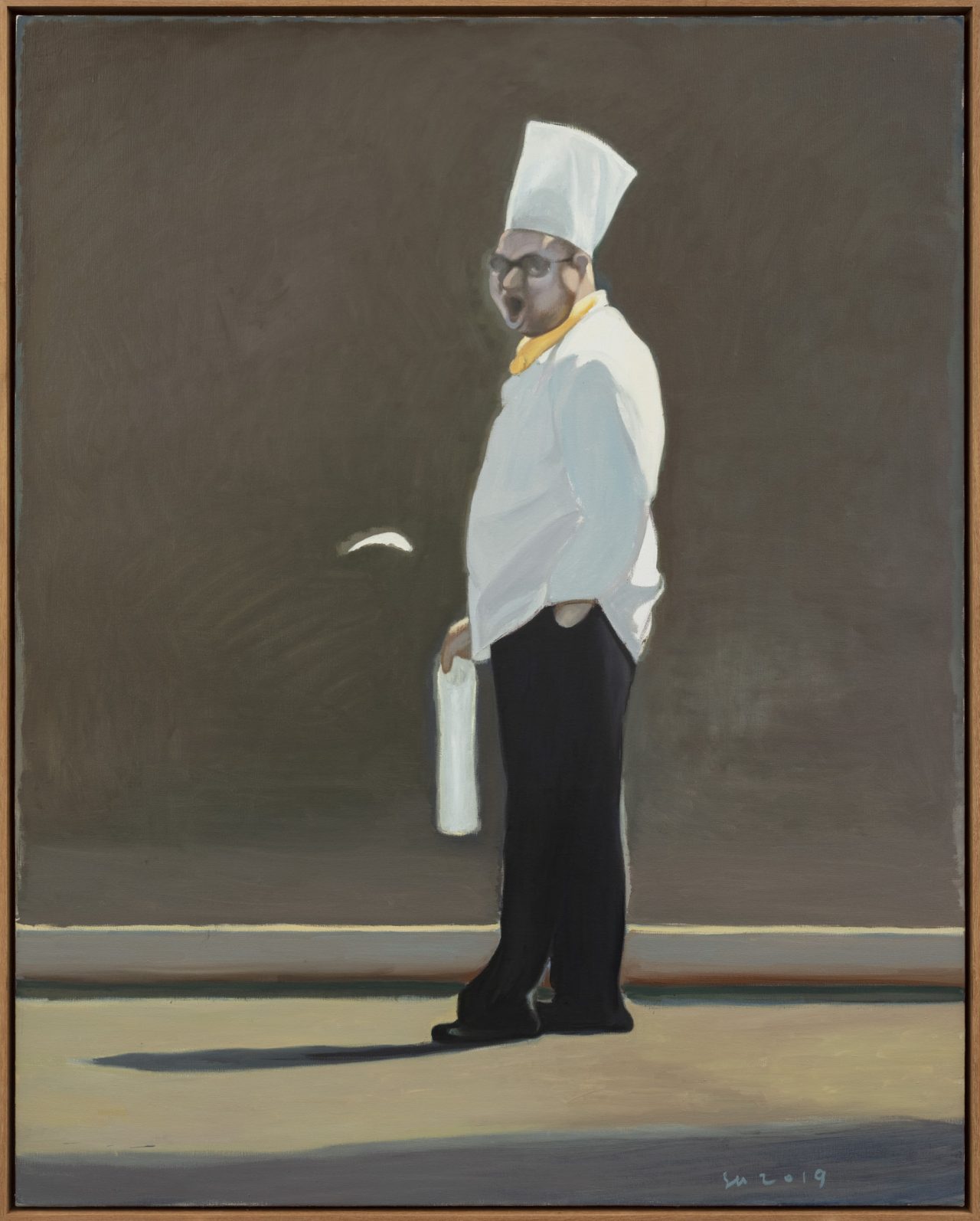
Singing Chef
2020
Oil on canvas
166 x 134 cm
-
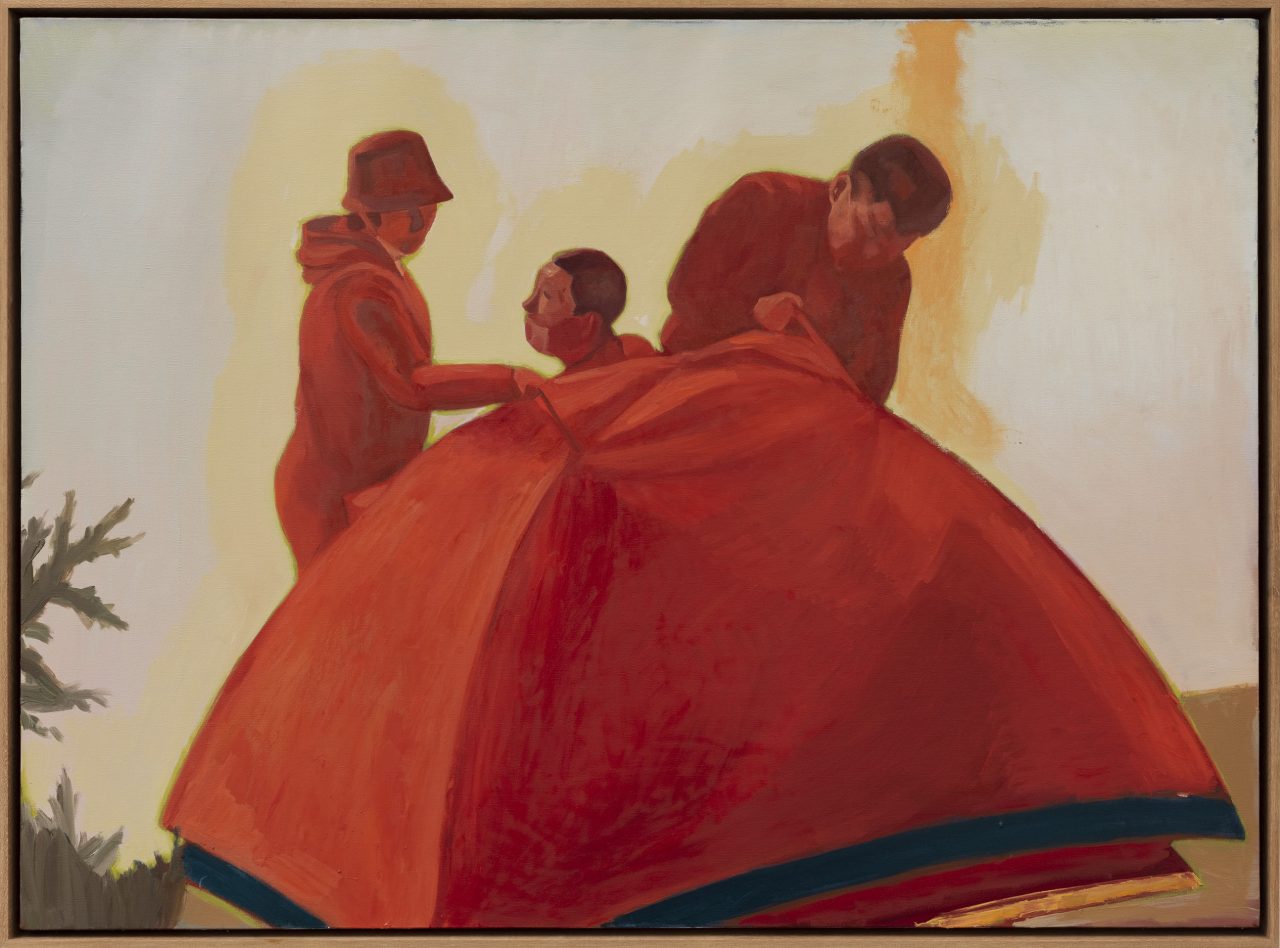
Outdoor Life (Pitch a Tent)
2020
Oil on canvas
101 x 136 cm
-
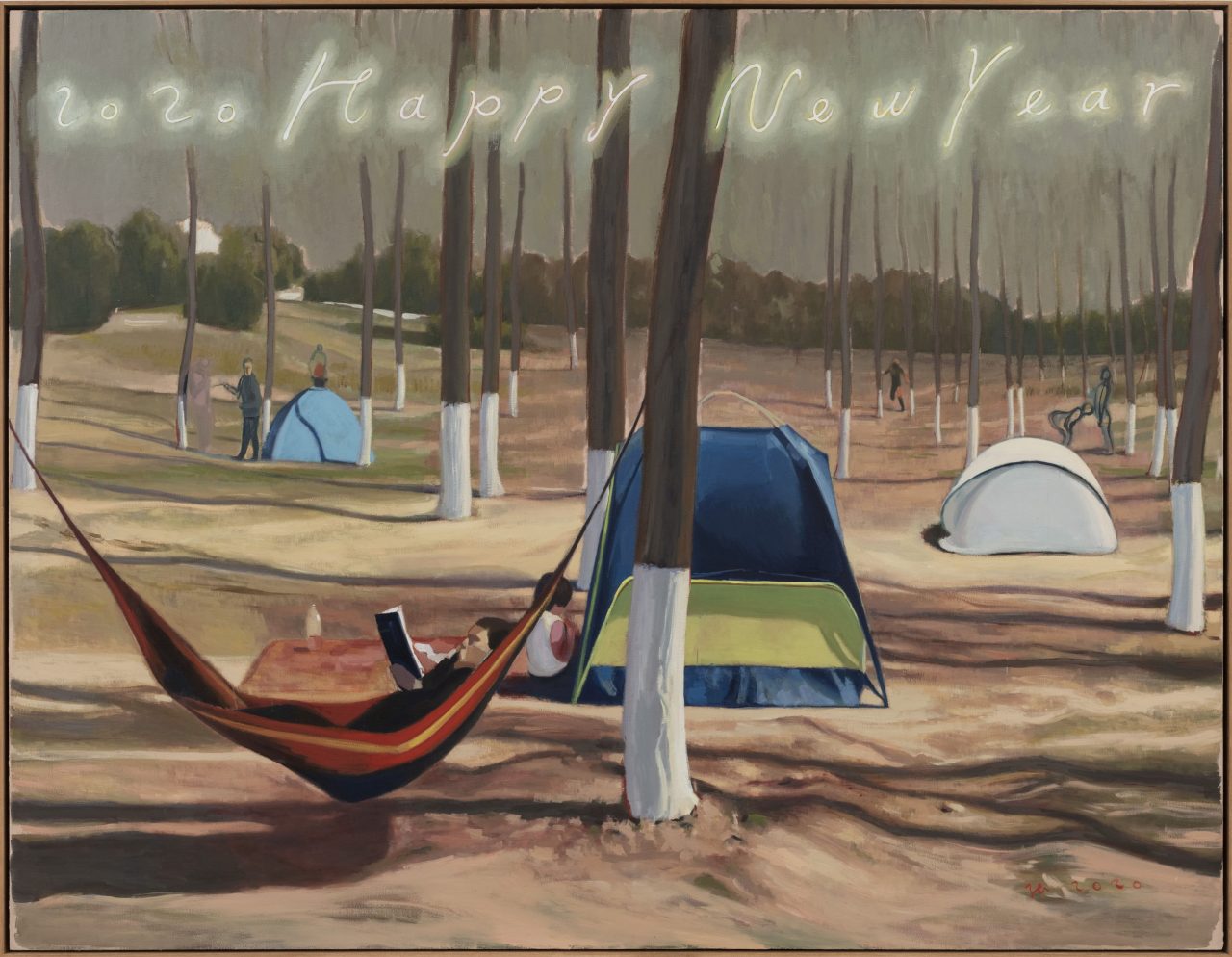
Outdoor Life (Happy New Year 2020)
2020
Oil on canvas
204 x 264 cm
-
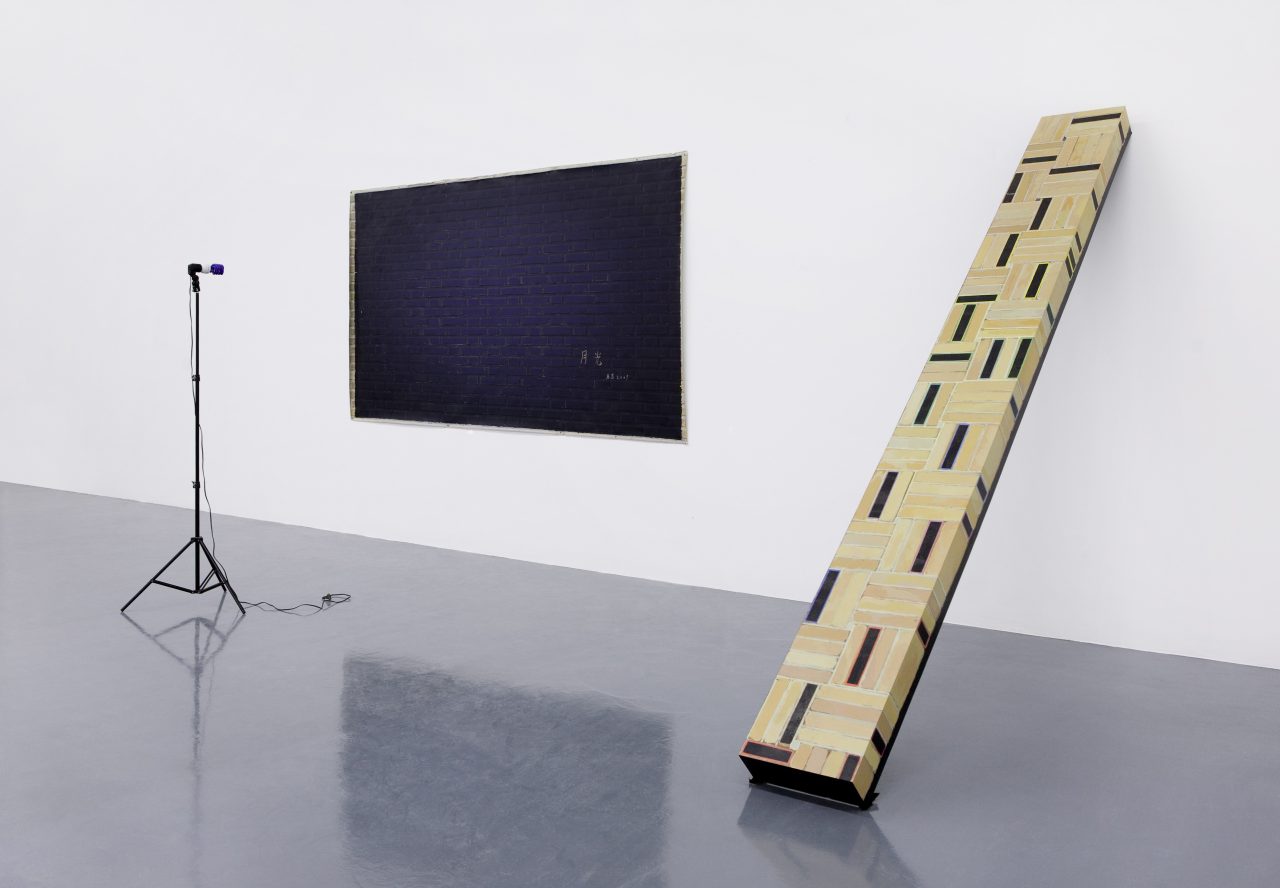
My Former Lovers Have All Grown Old
2008
Acrylic on canvas, acrylic on wood, light
Acrylic on canvas 170 x 300 cm, acrylic on wood 350 x 40 x 15 cm, light 180 cm
-
-1280x1025.jpg)
A Scene of Snow (Relief Sculpture)
2015
Acrylic on canvas
198 x 252 cm
-
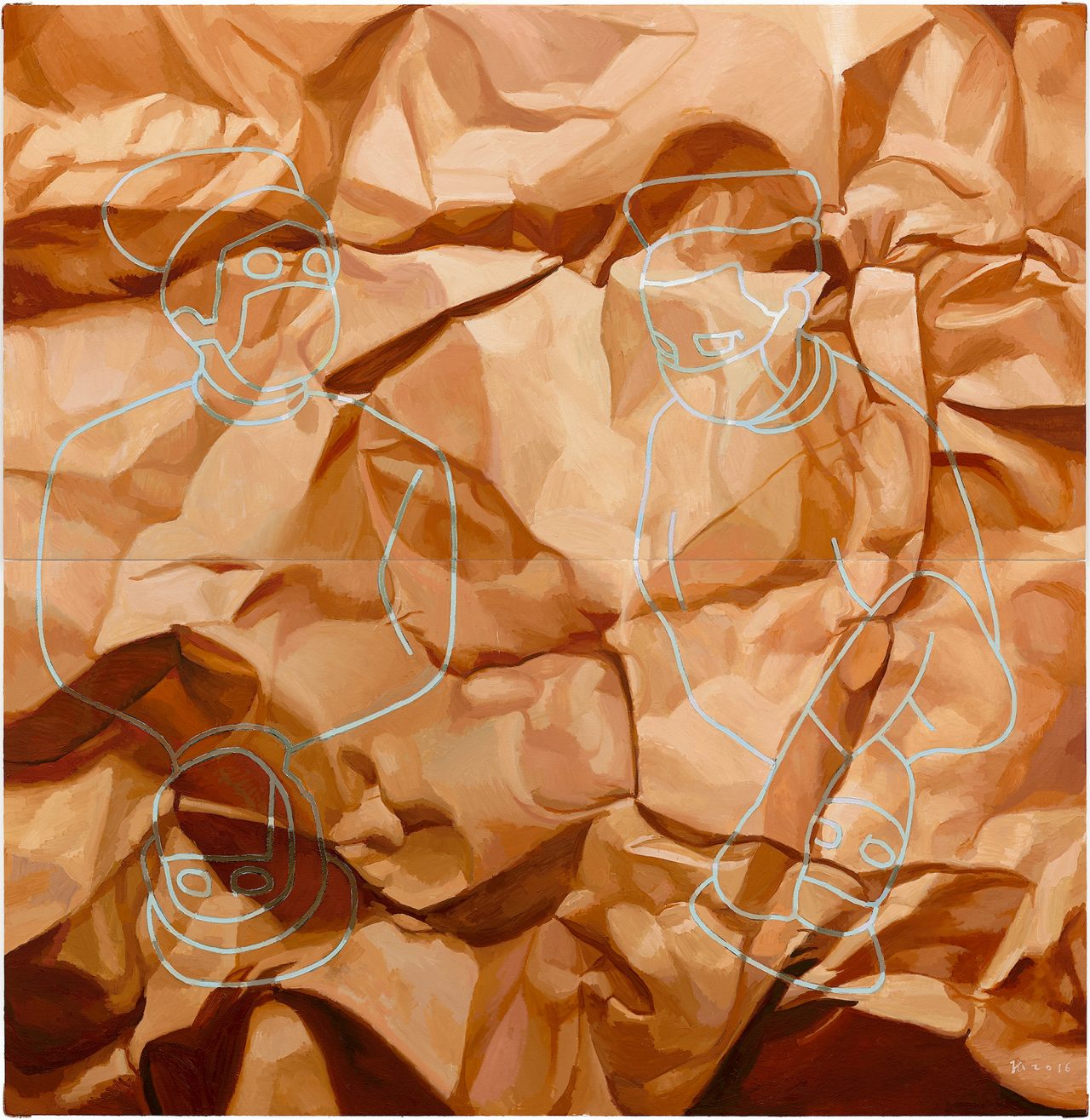
A Second
2016
Oil on canvas
2 panels, 126 x 246 cm each
-
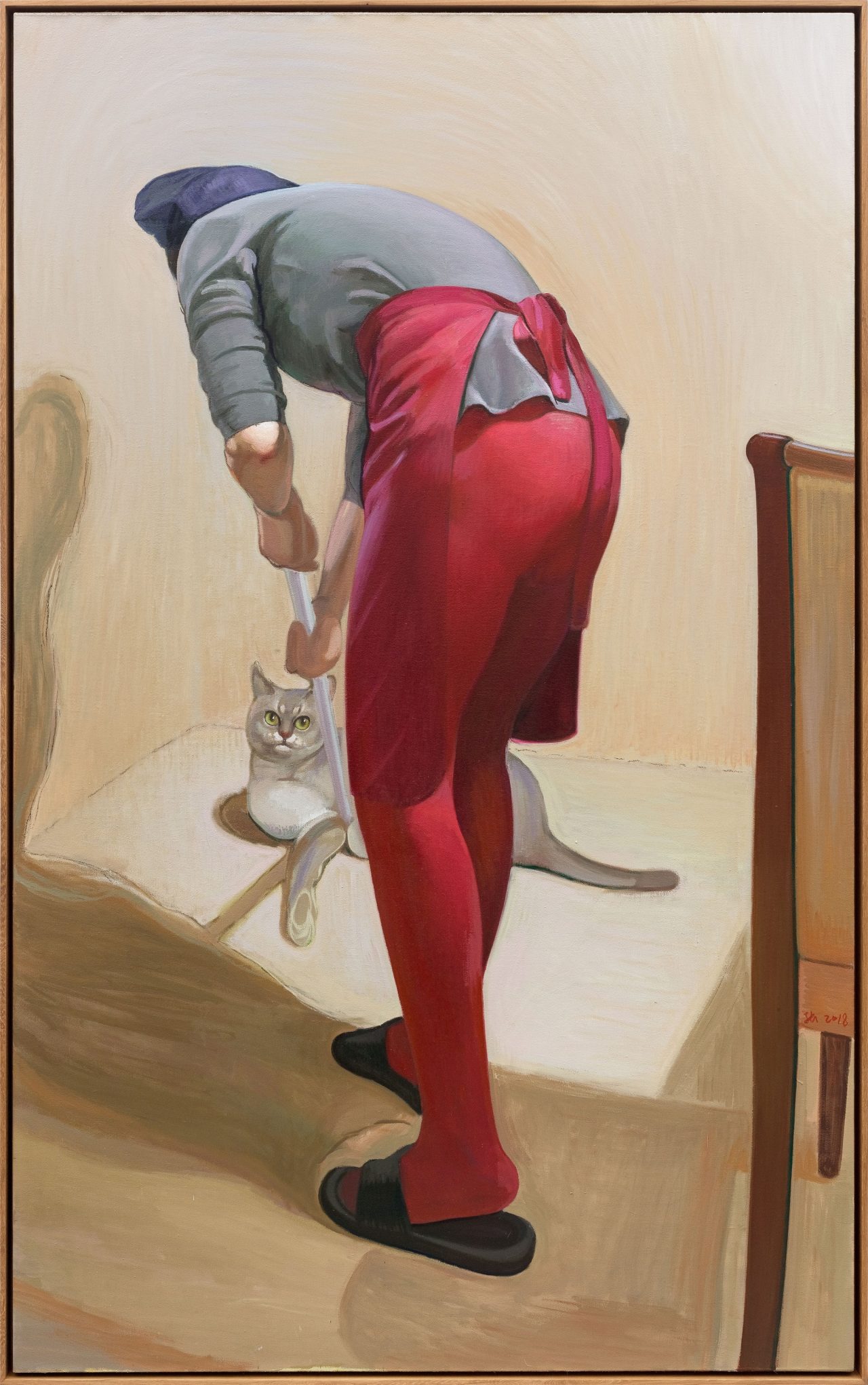
Imitation of Labor 2
2018
Oil on canvas
200 x 124 cm
-
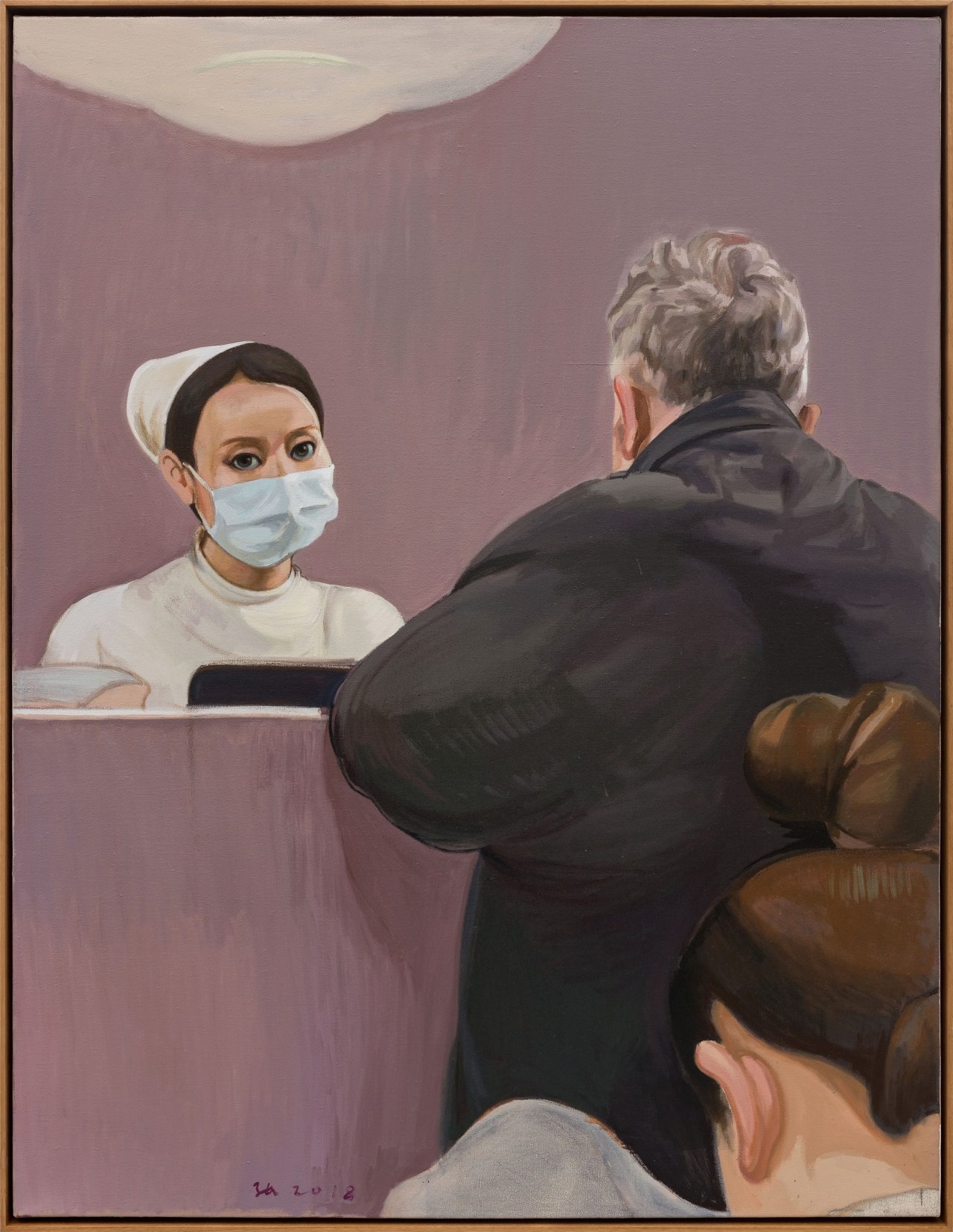
Just Like in the Mirror 1
2018
Oil on canvas
145.8 x 112 cm
-
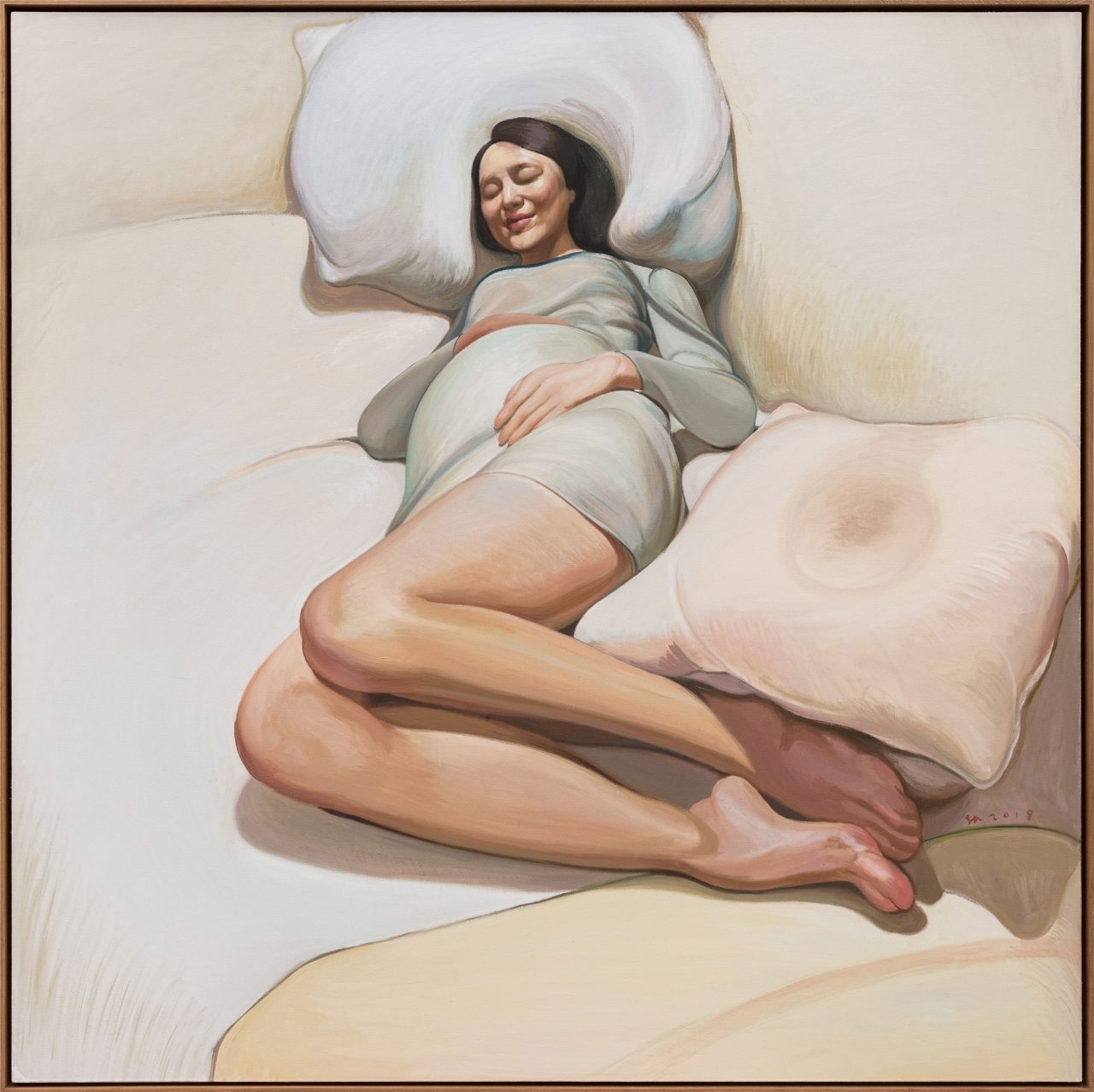
Pregnant Woman on the Bed
2018
Oil on canvas
200 x 200 cm
Chinese Eastern Railway: Zhang Hui
2020.12.19–2021.2.28
Long March Space
Zhang Hui 2018
2018.12.11 – 2019.1.20
Long March Space, Beijing, China
Before the Beginning and After the End II
Tianzhuo Chen, Hu Xiangqian, Ran Huang, Liu Wei, Wang Jianwei, Wu Shanzhuan, Inga Svala Thorsdottir & Wu Shanzhuan, Xu Zhen, Xu Zhen produced by MadeIn Company, Zhan Wang, Zhang Hui, Zhou Xiaohu, Zhu Yu
2016.9.17-11.27
Long March Space, Beijing
Zhang Hui: Zhang Hui
2016.7.22 -9.7
Long March Space, Beijing
Zhang Hui: Plaza
2014.4.19 – 6.22
Long March Space, Beijing
Zhang Hui: Groundless
2012.4.28 – 6.17
Long March Space, Beijing
Long March Project: Ho Chi Minh Trail
Chen Chieh-jen, Liu Wei, MadeIn Company, Wang Jianwei, Wu Shanzhuan, Zhang Hui
2010.9.4 – 11.14
Long March Space, Beijing
Zhang Hui: 21st Floor and a Half
2009.4.25 – 5.31
Long March Space, Beijing
Zhang Hui: Ready, Any Time
2008.12.6 – 2009.3.15
Long March Space, Beijing
Long March Capital III: Visual Economy
Chen Jie, Chen Qiulin, Guo Fengyi, Hong Hao, Jiang Jie, Lin Tianmiao, Liu Wei, Ma Han, Mu Chen and Shao Yinong, Qin Ga, Qiu Zhijie, Shi Qing, Wang Gongxin, Xiao Lu, Xiao Xiong, Xu Zhen, Yu Hong, Yang Shaobin, Yang Zhenzhong, Zhu Yu, Zhan Wang, Zhang Hui, Zhou Xiaohu
2008.5.17 – 8.25
Long March Space, Beijing
Zhang Hui: Partial Zones
2006.10.14 – 11.26
Long March Space, Beijing
Yijuxiang Group: Happy Days
Zhang Hui, Wang Mao, Wang Chen, Wang Renke
2006.3.4 – 3.31
Long March Space, Beijing
Long March Capital
Chen Qiulin, Chen Xiaoyun, Deng Dafei, Guo Fengyi, He Jinwei, Hong Hao, Jiang Jie, Jin Zhilin, Li Qiang, Li Tianbing, Li Shurui, Li Zhenhua, Lin Tianmiao, Liu Ding, Liu Liping, Ma Liuming, Liu Wei, Song Yonghong, Qin Ga, Qiu Zhijie, Shao Yinong+Mu Chen, Wang Jingsong, Wang Mai, Xiao Xiong, Yu Hong, Zhan Wang, Zhuang Hui
2006.2.11 – 7.2
Long March Space, Beijing
Assembling
Zhang Hui
chic K11 Art Space, Shenyang, China
2018.5.27 – 8.25
BEING INFORMATION—— Person-a
Zhang Hui
SSSSTART, Shanghai, China
2017.9.30 – 10.28
Social Emotion
Tianzhuo Chen, Liu Wei, Zhang Hui
Cc Foundation & Art Centre
2017.7.22-8.20
Link
Nonfigurative
Wang Jianwei, Zhang Hui
2015.11.21 – 2016.2.28
Shanghai 21st Century Minsheng Art Museum, Shanghai, China
Notes on Paintings
Zhang Hui, Zhu Yu
2015.9.26 – 2015.12.31
Blue Roof Museum of Chengdu, Chengdu, China
Stereognosis Zone
Xu Zhen, Zhang Hui, Zhu Yu
2015.8.22 – 11.16
Redtory Museum of Contemporary Art, Guangzhou, China
Sharjah Biennial: Re:emerge, Towards a New Cultural Cartography
Hu Xiangqian, Liu Wei, Wang Jianwei, Yang Shaobin, Zhang Hui
2013.3.13 – 5.13
Sharjah Biennial, Sharjah, UAE
张慧:时空的堆叠
2020_798艺术_张慧:时空的堆叠_文/王薇
张慧:间性关系的建构
2016_艺术世界_张慧:间性关系的建构_文/栾志超.pdf
Zhang Hui’s Scene
2016.08_LEAP_by Shi Qing
张慧:广场
2014_艺术界LEAP_张慧:广场_文/贺婧
张慧:画画很像作家写作
2014_艺廿一_张慧:画画就像作家写作_文/唐莉
Zhang Hui: Imprints
2014.06.10_randian_by Iona Whittaker
张慧 广场
2014_艺术时代_张慧 广场
临时:论张慧个展“广场”
2014_艺术论坛ARTFORUM_临时:论张慧个展“广场”_文/郭娟
Zhang Hui, 2012–2016
Ed. Lu Jie, Zhang Hui, 2012–2016 (Beijing: Long March Space, 2018)
Chinese and English language with essay by Lu Mingjun
Zhang Hui: Partial Zones
Ed. Lu Jie, Zhang Hui: Partial Zones, exh. cat. (Beijing: 25000 Cultural Transmission Center; New York: Long March Foundation, 2006)
Chinese and English language with texts by Qiu Zhijie, Xiao Xiong

Zhang Hui
Ed. Wang Chengyan, Zhang Hui (Beijing: Long March Space, 2012)
Chinese and English language with essay by Colin Chinnery
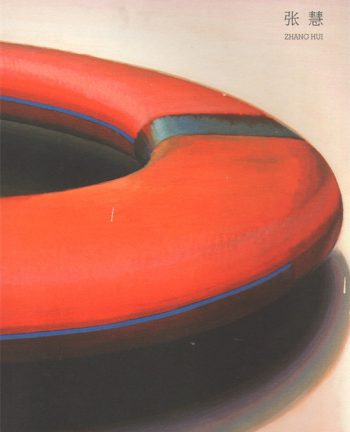
[Exhibition] Zhang Hui: Zhang Hui, Long March Space, Beijing
[Artist]Zhang Hui Studio
Courtesy of Kehua Beijing Thumb Hero Cultural Development Co. Ltd
Courtesy of Kehua Beijing Thumb Hero Cultural Development Co. Ltd
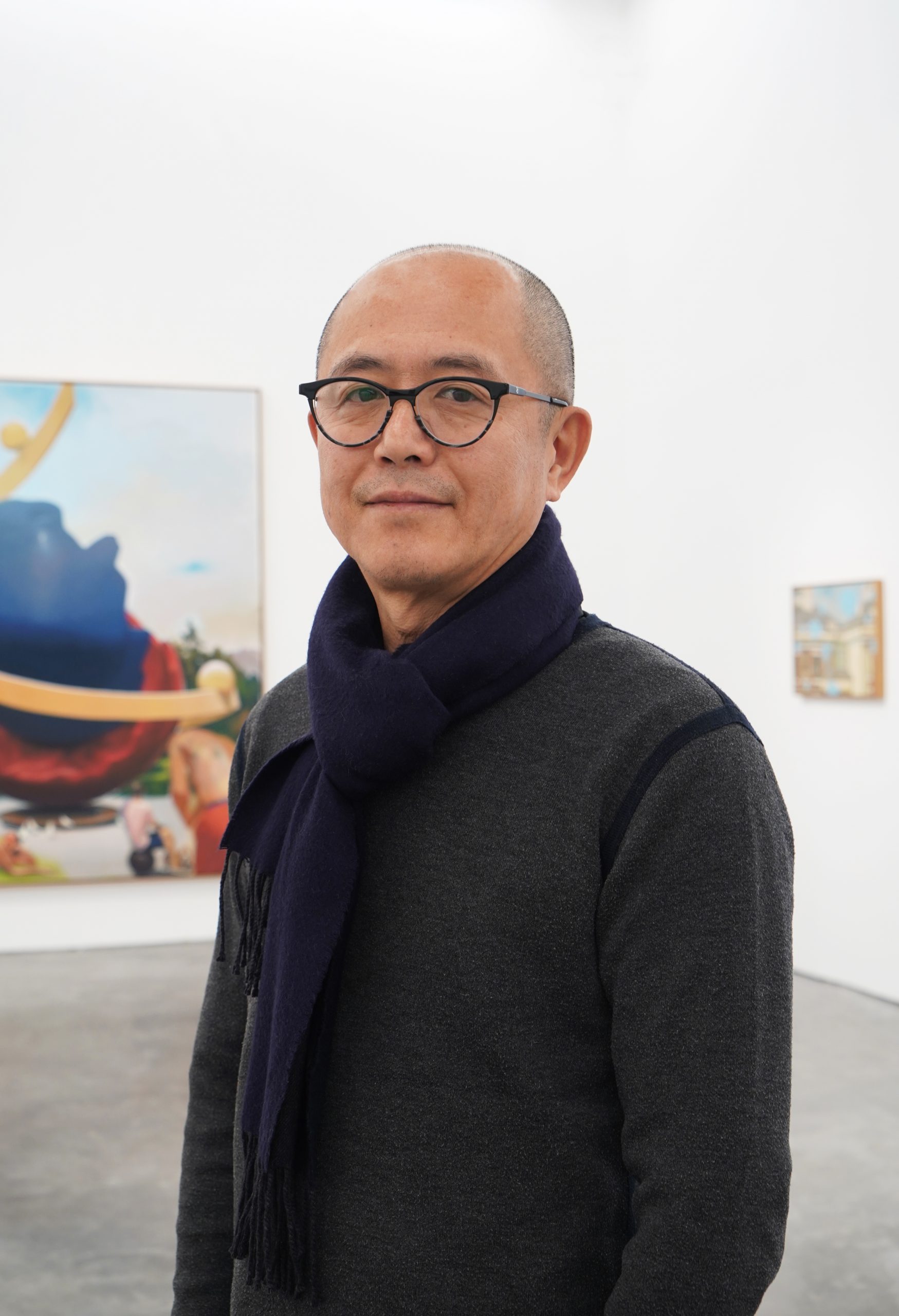
“Two people want to go skiing, but it has been a warm winter and it still hasn’t snowed yet. So the two of them rent a snow cannon, they let it blow for two days and two nights when it has finally accumulated enough snow. They are in the middle of getting equipped, getting ready to descend the slope when it suddenly starts to snow. What I want to express is this moment at which reality and unreality intertwine”
–Zhang Hui
Zhang Hui was born in 1967 in Heilongjiang Province, he graduated in 1991 from the Central Academy of Drama and currently lives and works in Beijing. He is an important member of the Post-Sense Sensibility group active in the late 1990s early 2000s in the Chinese contemporary art world, after which in 2004 he founded the Odd Phenomena Group. In his early explorations, Zhan Hui developed an artistic creativity focused on action and installation, which his later practice centering on explorations into multimedia theatrical performance. Beginning with the solo-show “Partial Zones” at Long March Space in 2006, Zhang Hui’s concentration has shifted to a painting practice. His works conceal eminently readable and bewitching theatricality within them, simultaneously profoundly rethinking the truth and uniqueness of known reality, striving to expand the structure behind real events and their images.
Zhang Hui searches for the space where reality and the subconscious, the normal and the abnormal interact. In his recent work, Zhang continues his performative exploration of duration and its relationship to ideas of time and space through an investigation of painting. Zhang’s subjects move from the rituals of banality which are anchored in everyday life, to the quest for an alternative dimension – two primary components of this artist’s evocative dramas. His gestural surfaces scale the human on a spiritual and psychological level, employing elements of the theatrical (through color and scale) to create a dreamscape whereby his subject’s vulnerability is exposed to the viewer, floating amid the landscape.

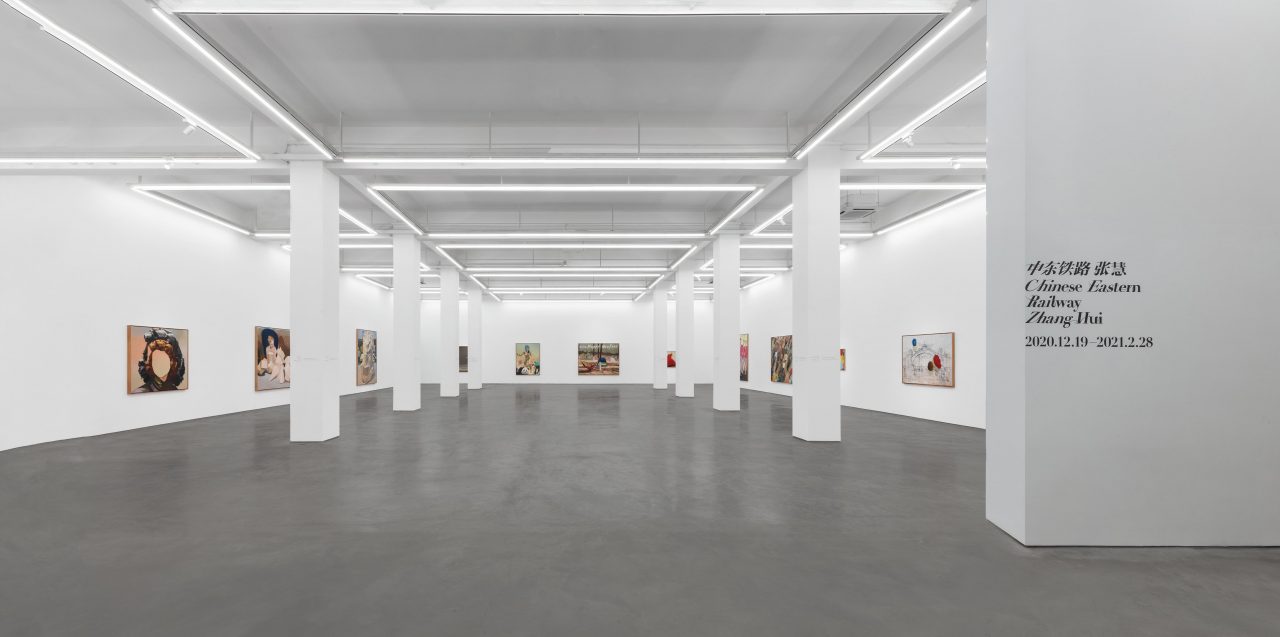

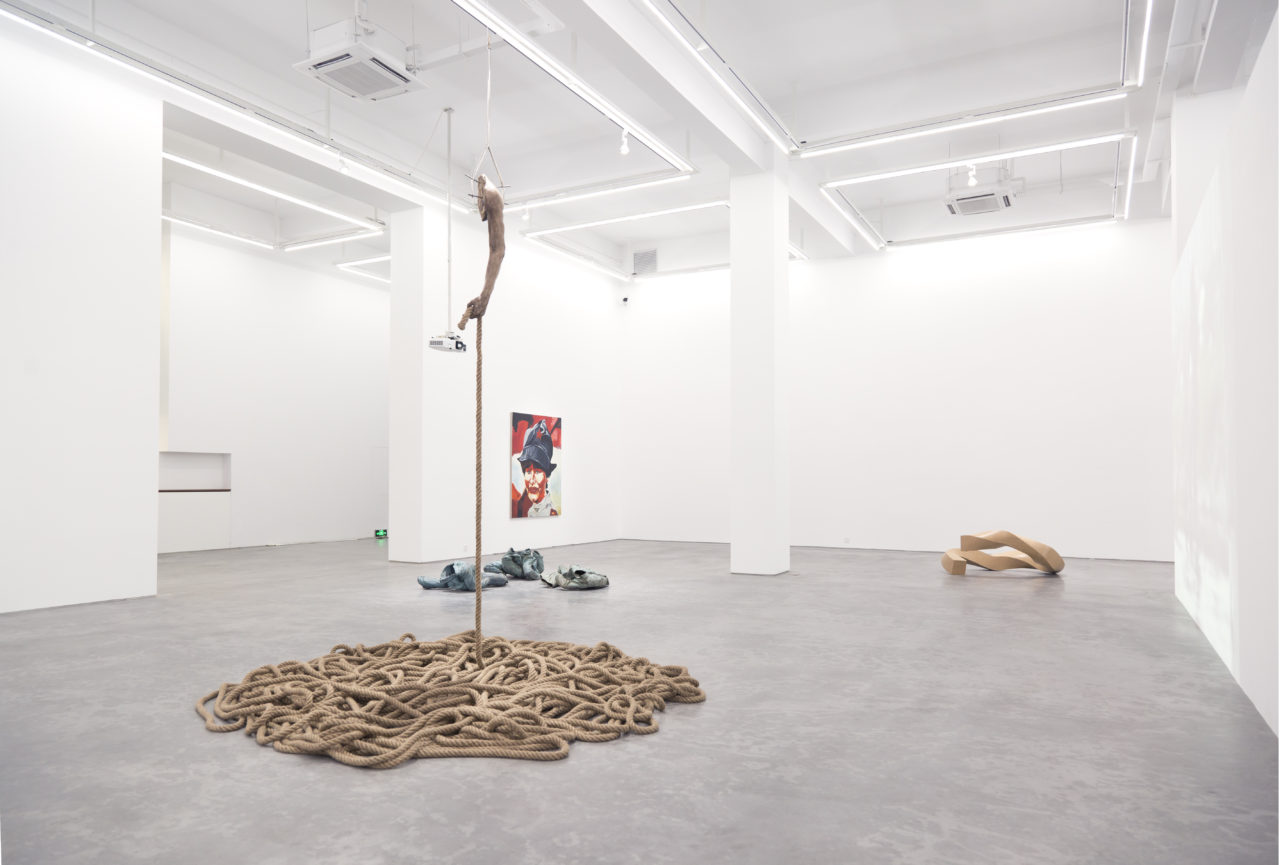
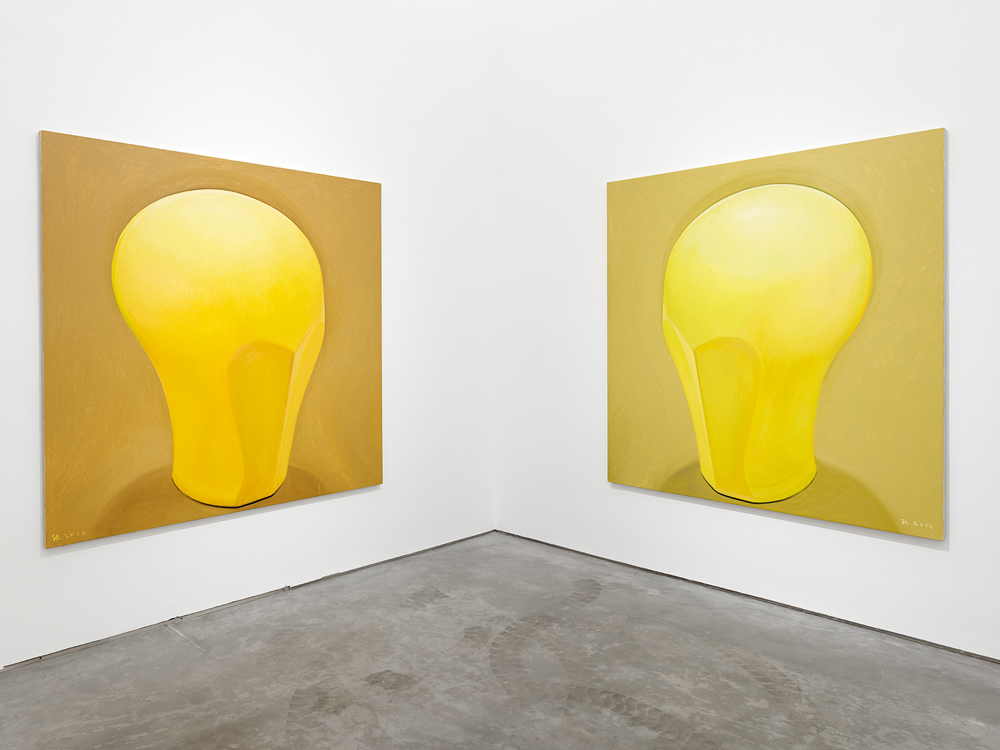
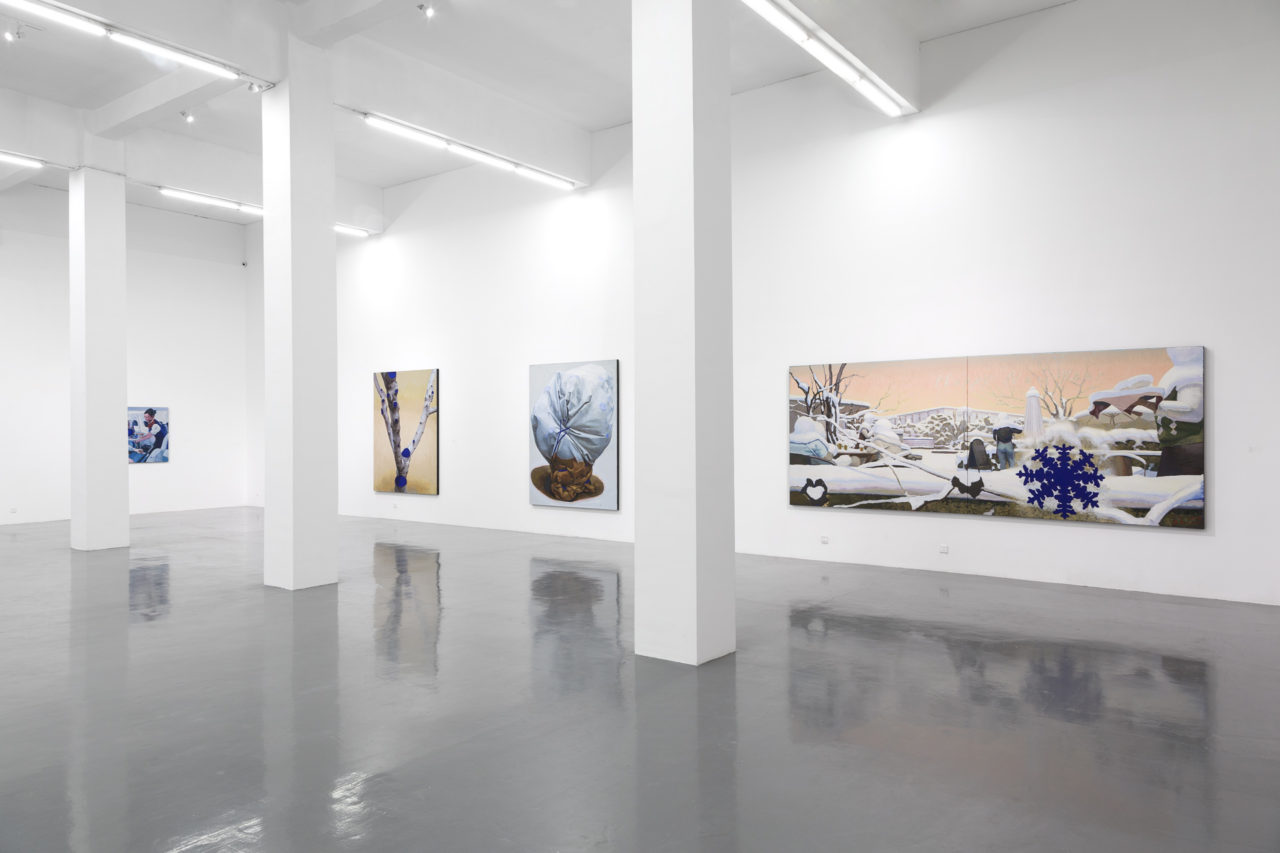
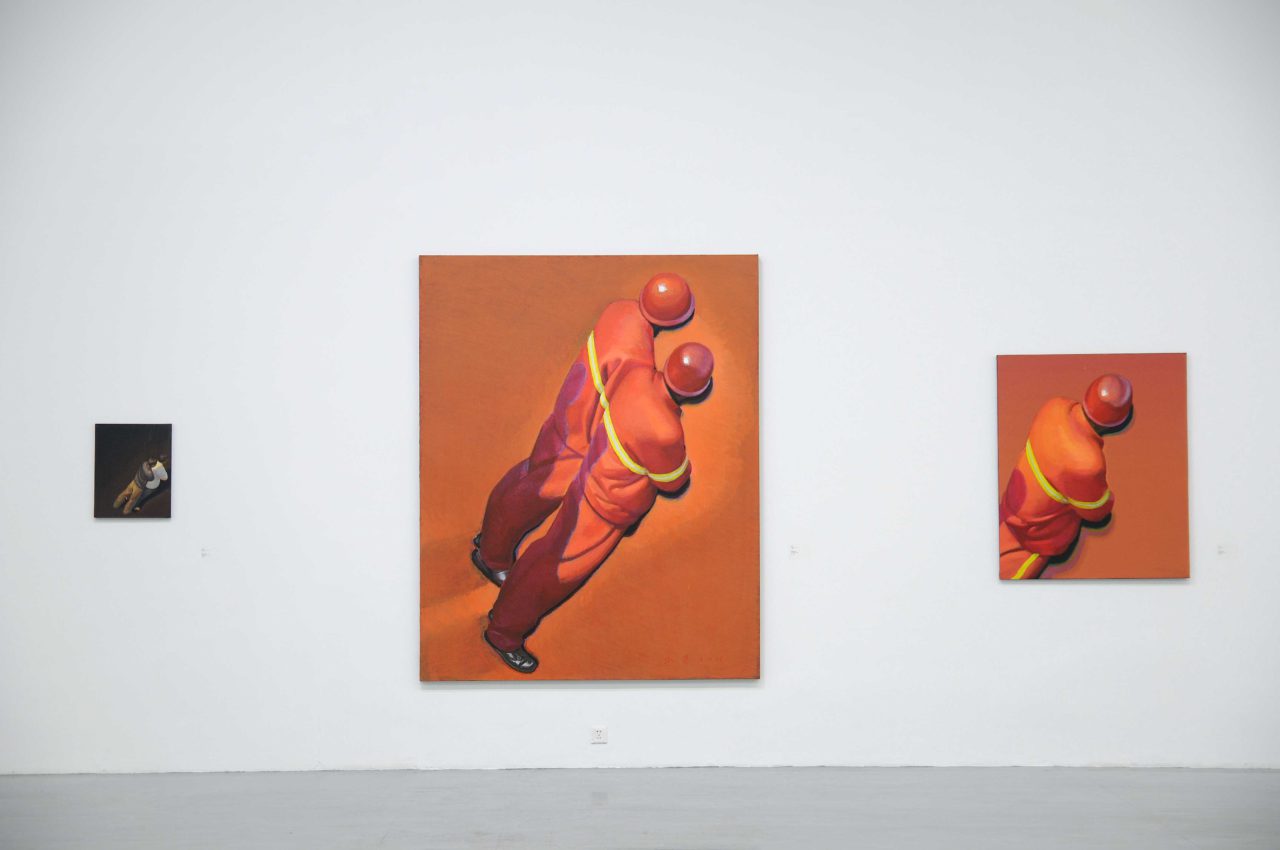
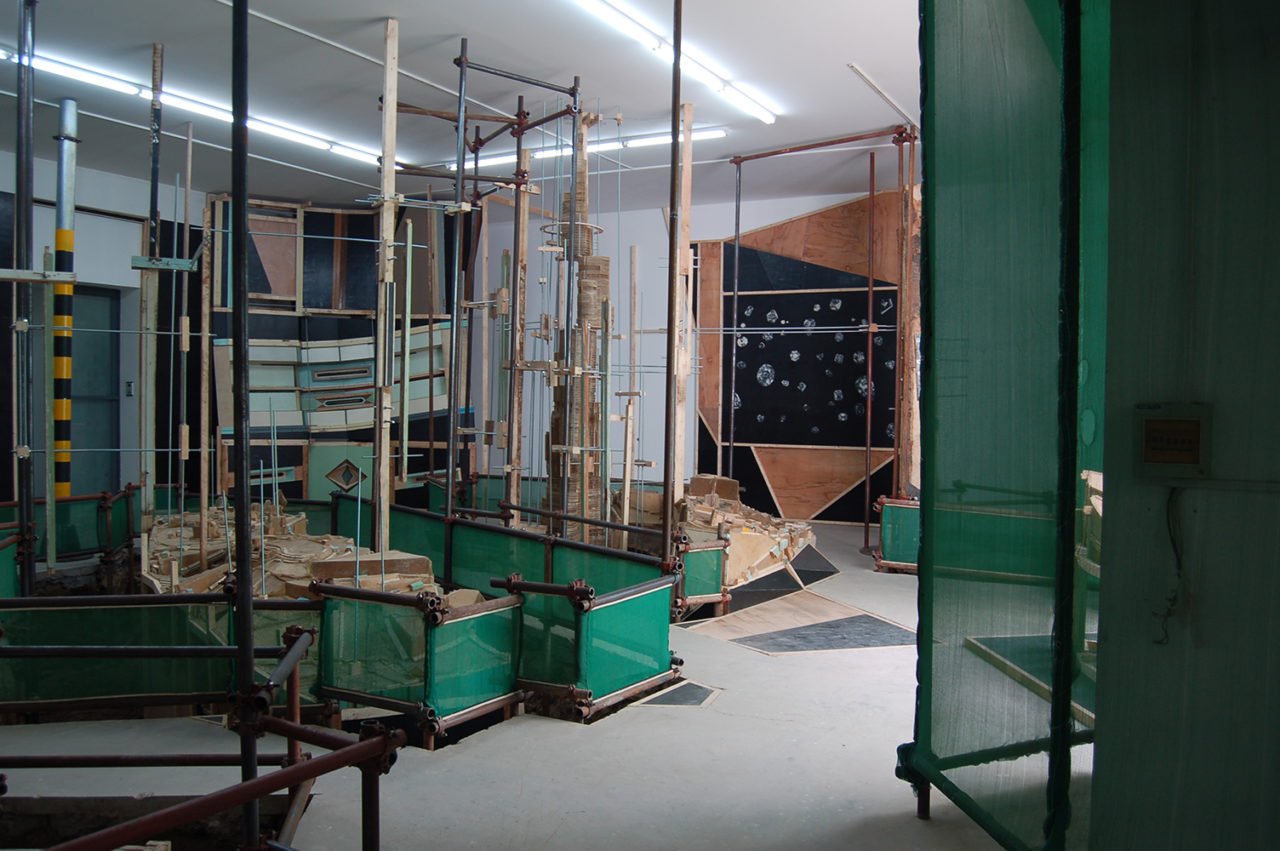
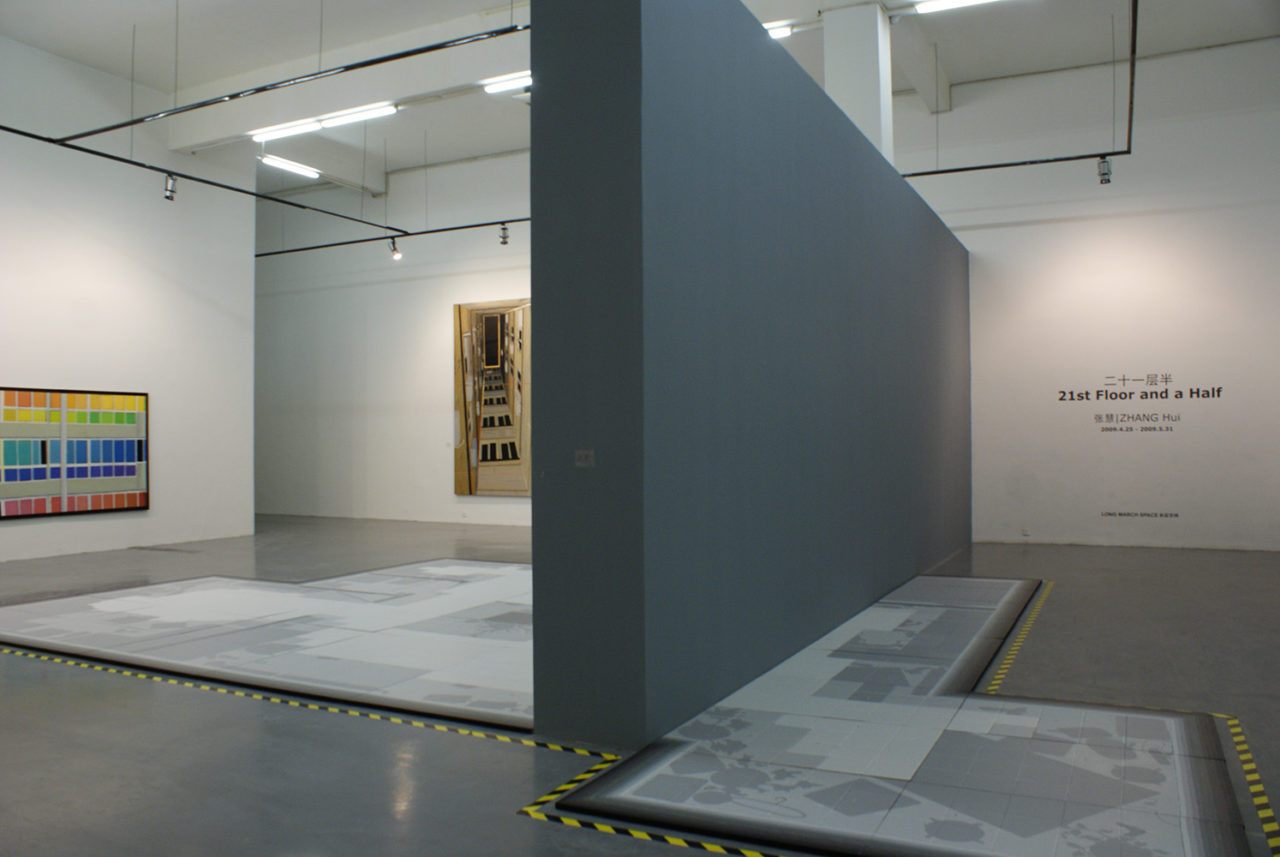
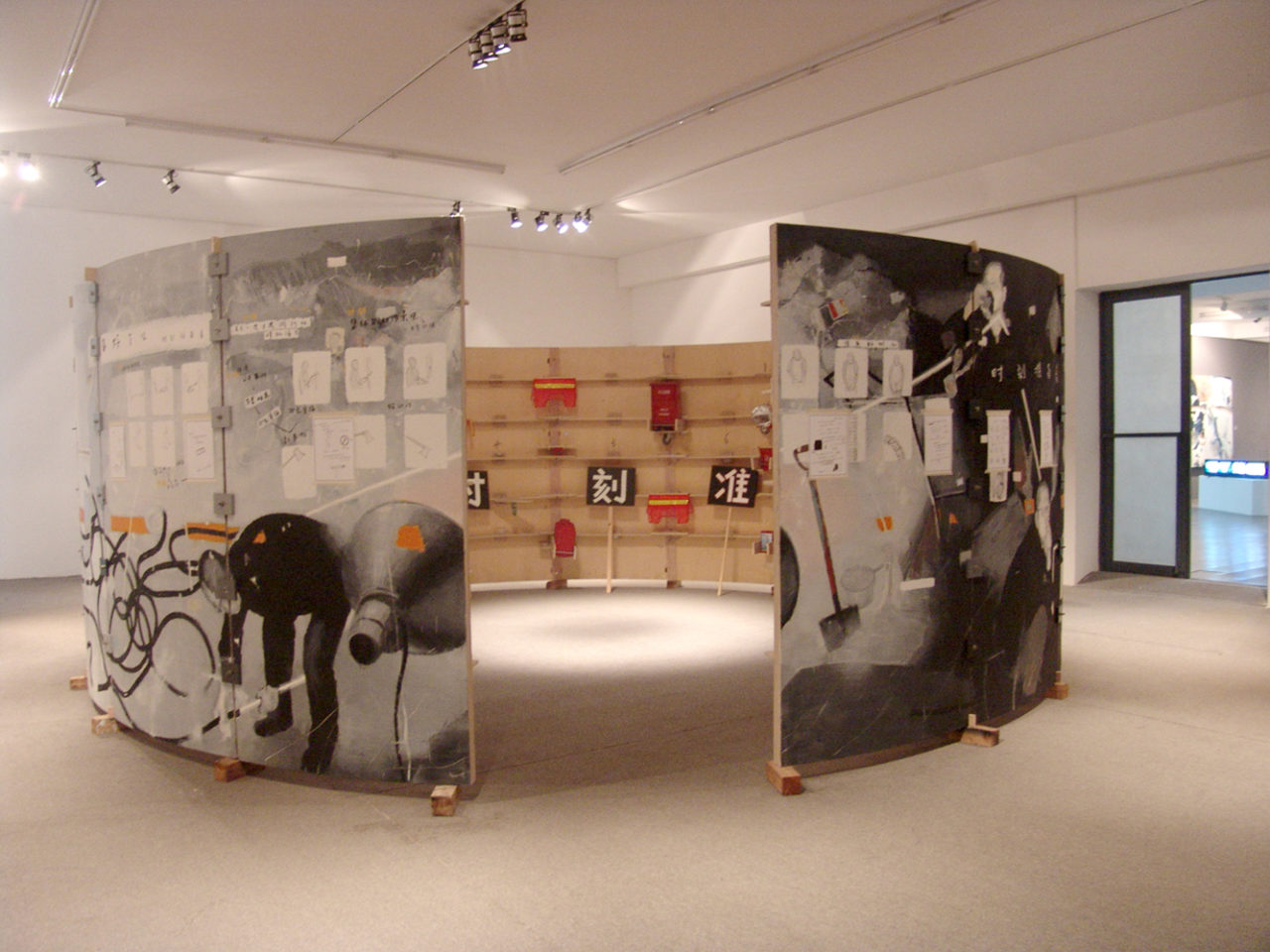
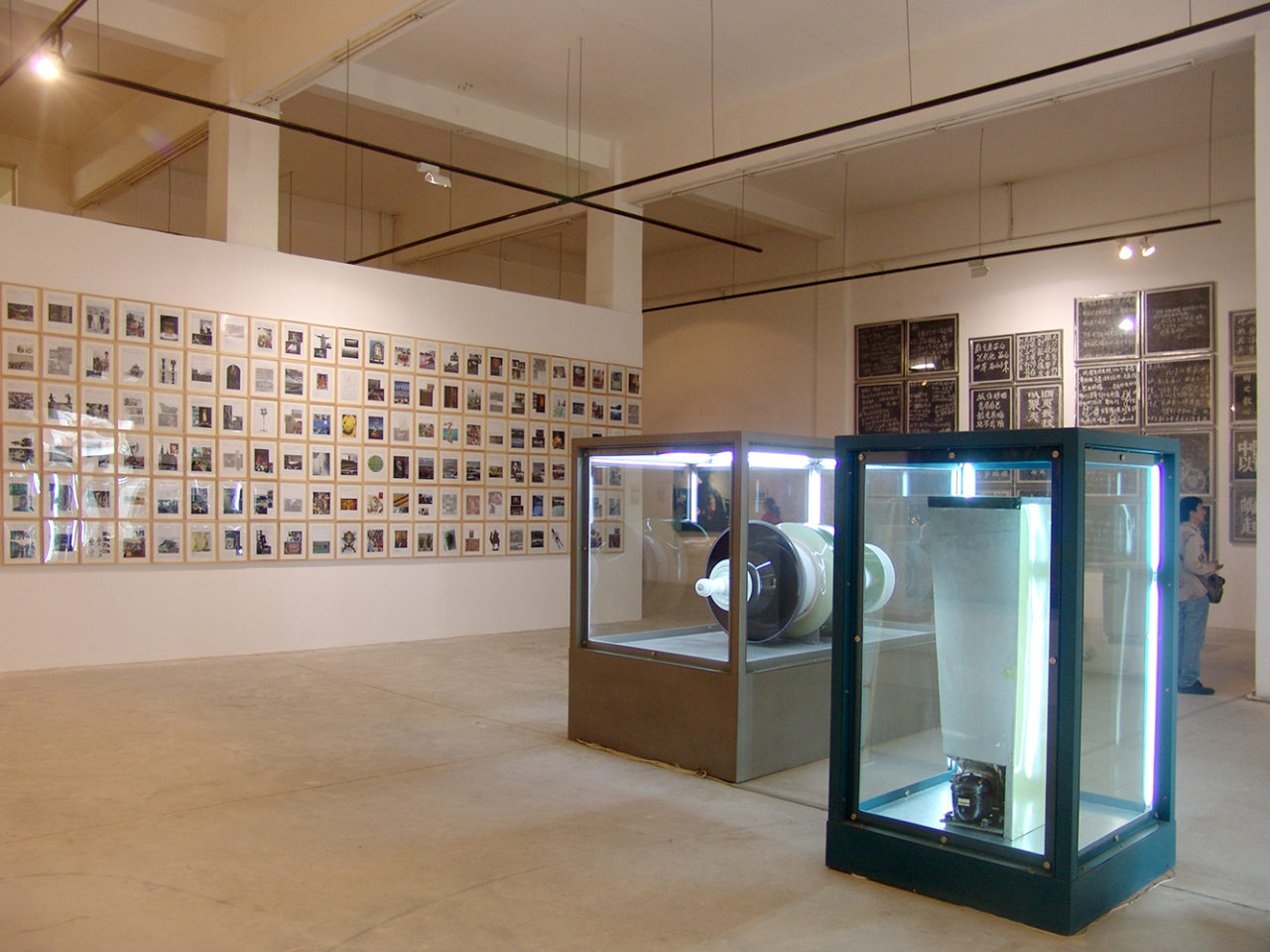
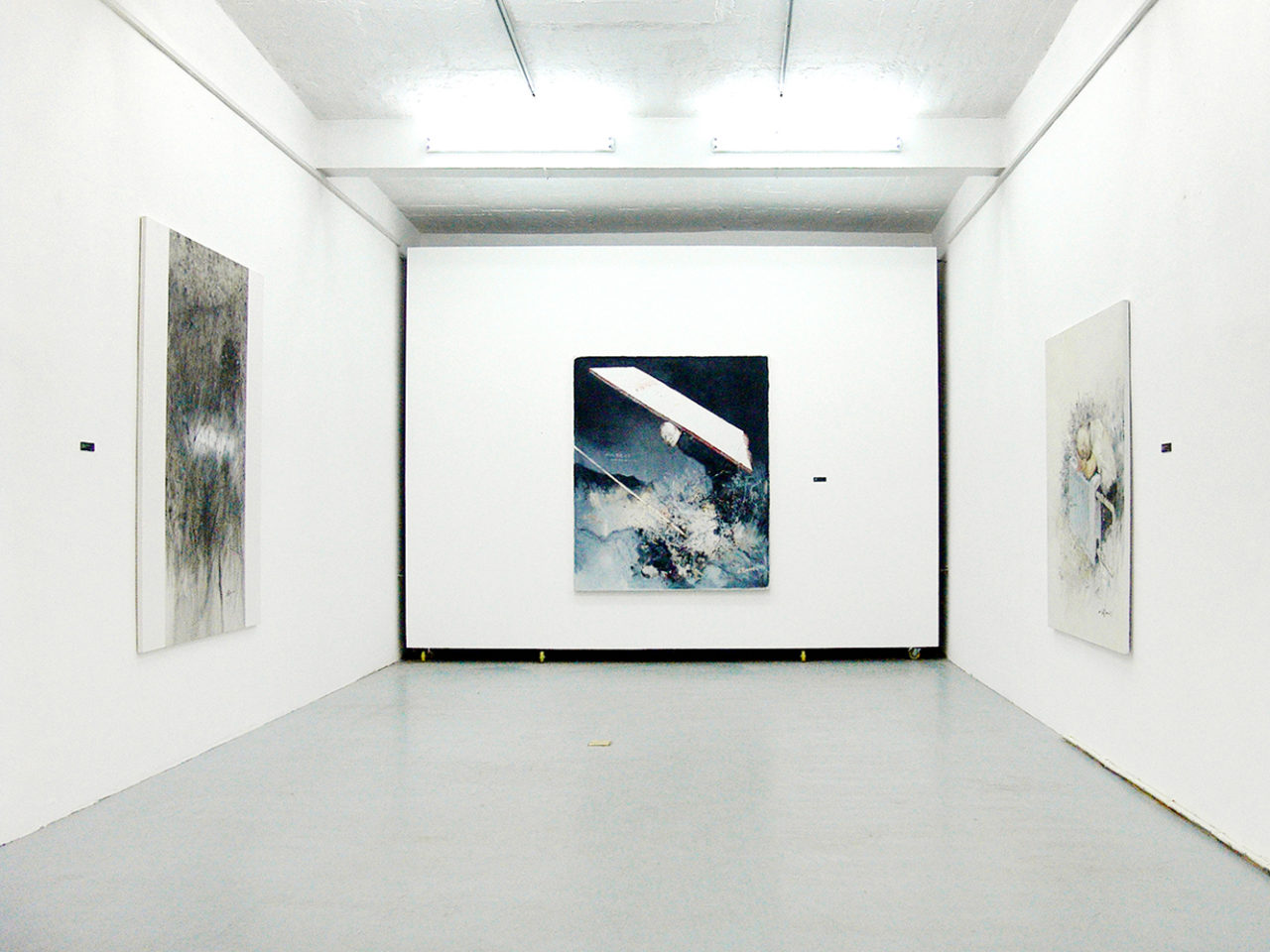
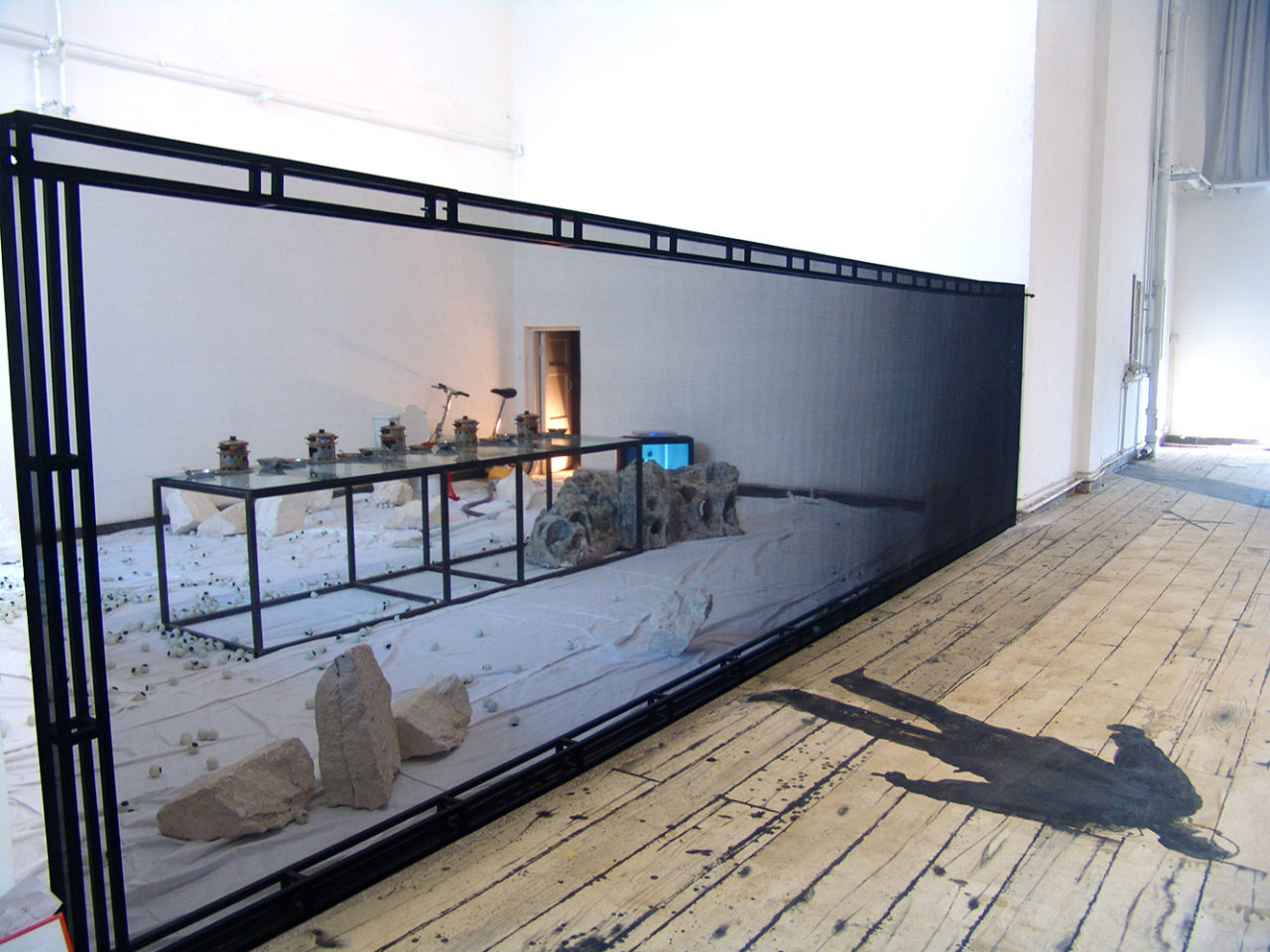
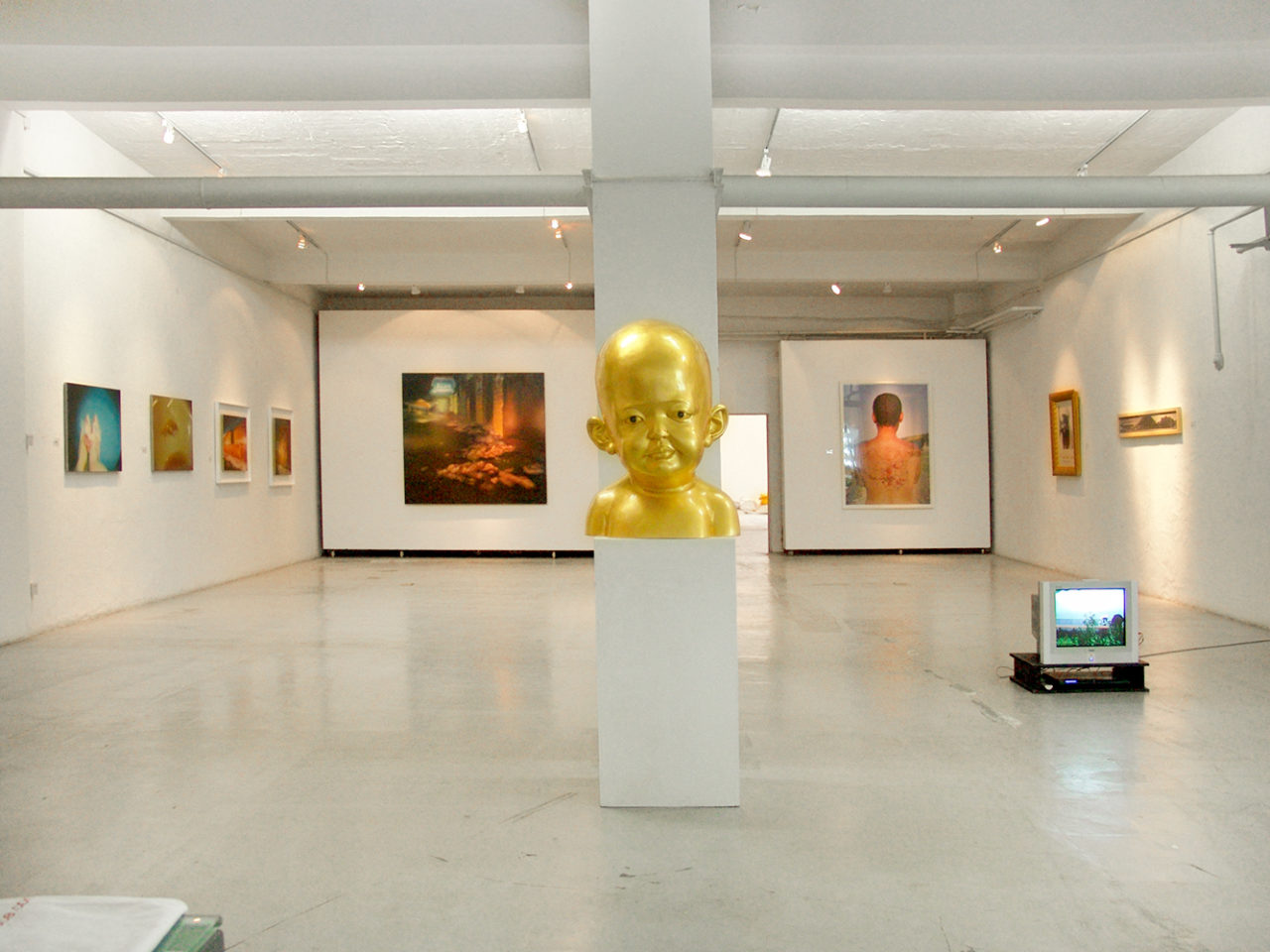
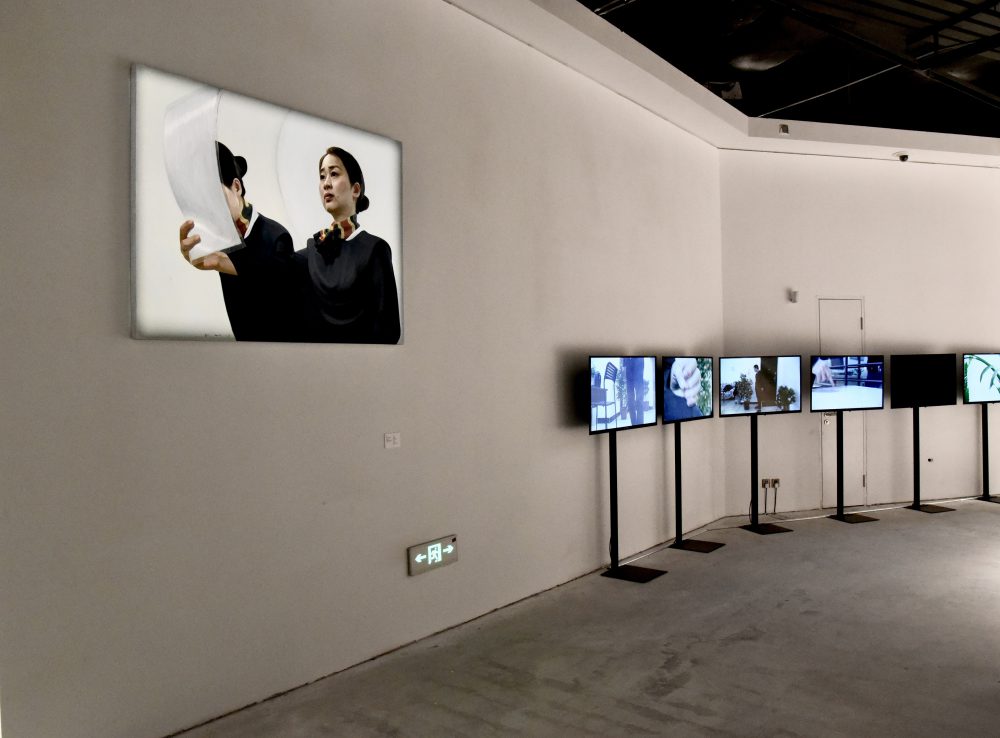
-e1507994782550-1280x720.jpeg)
